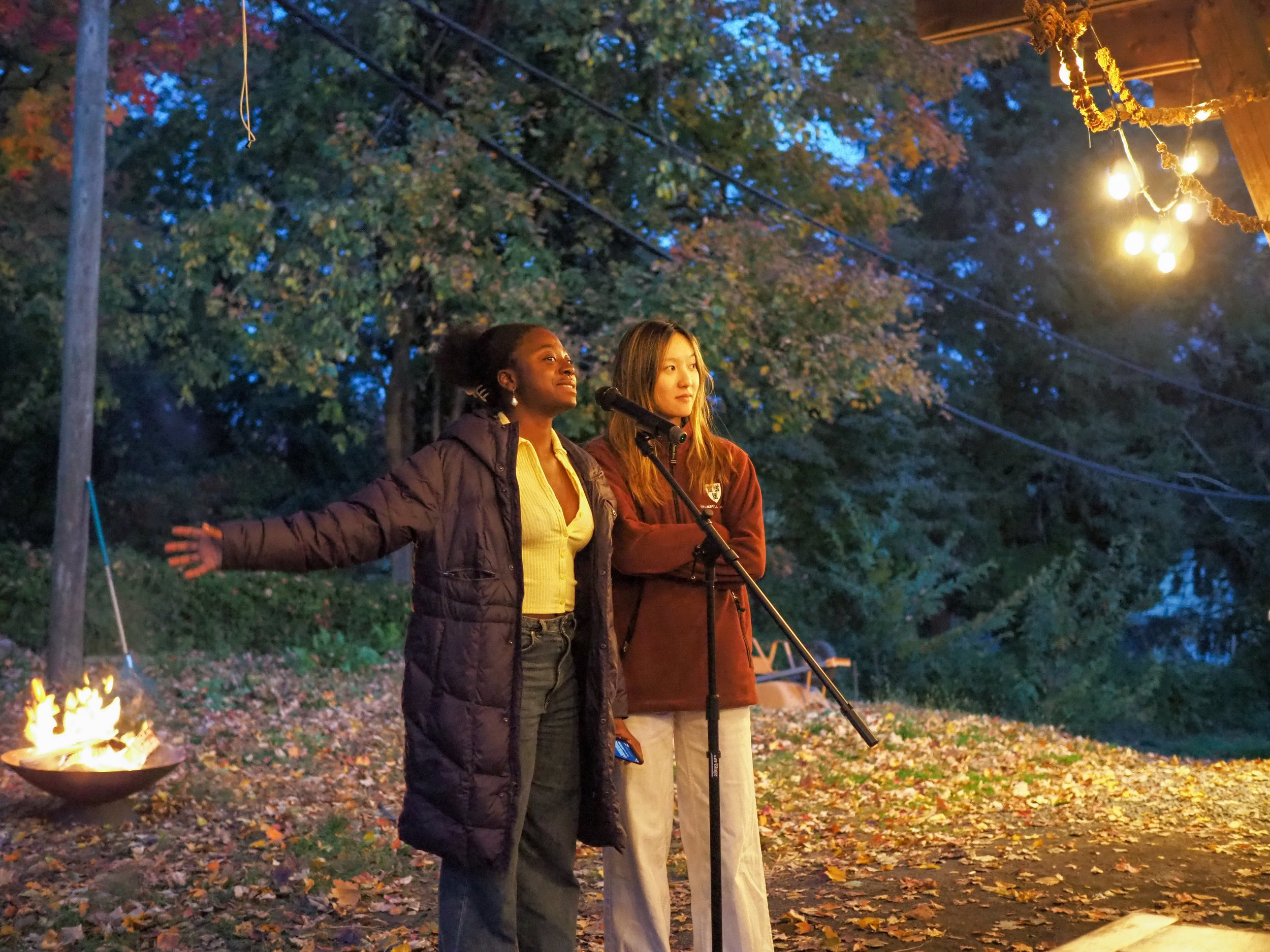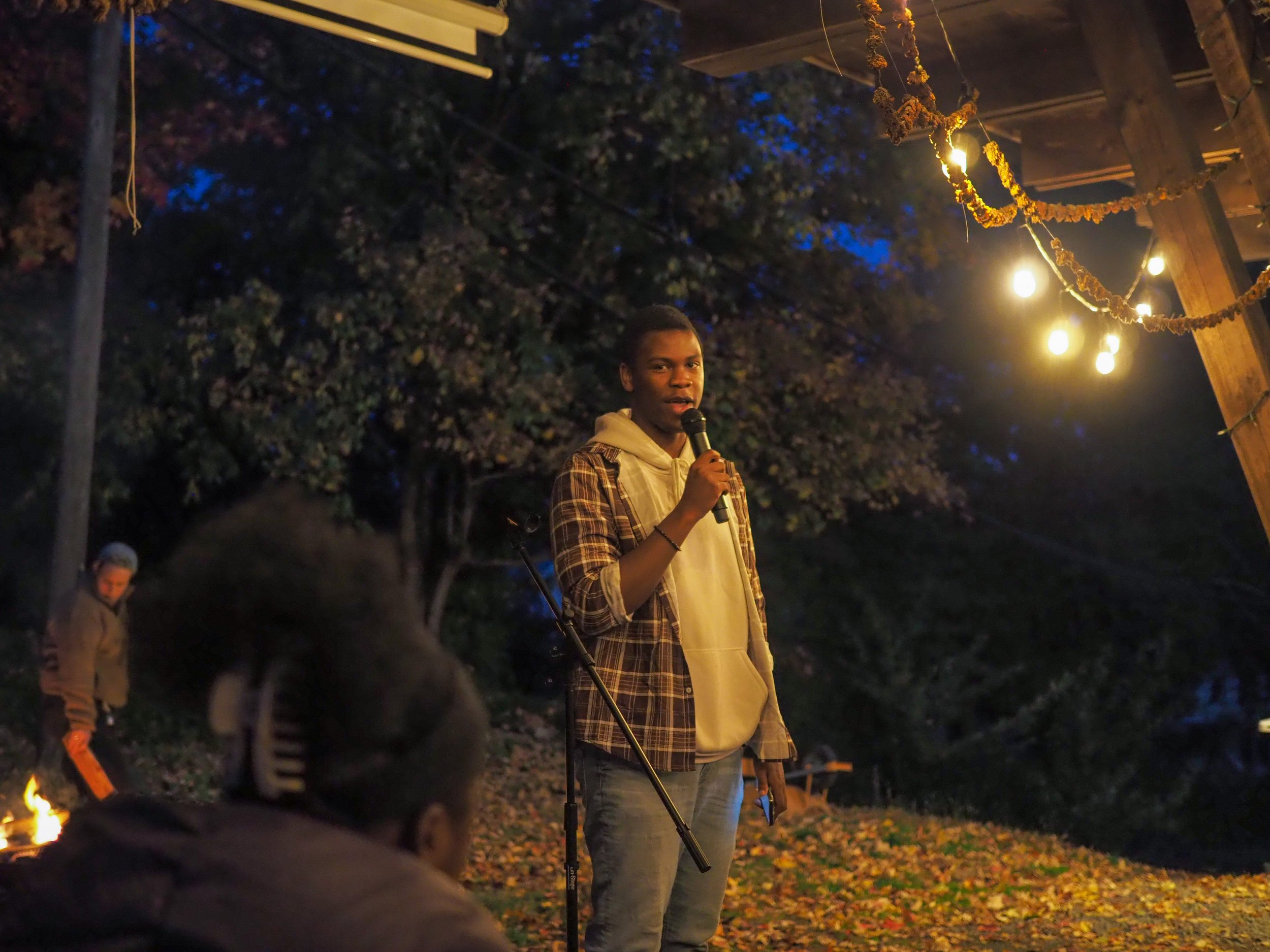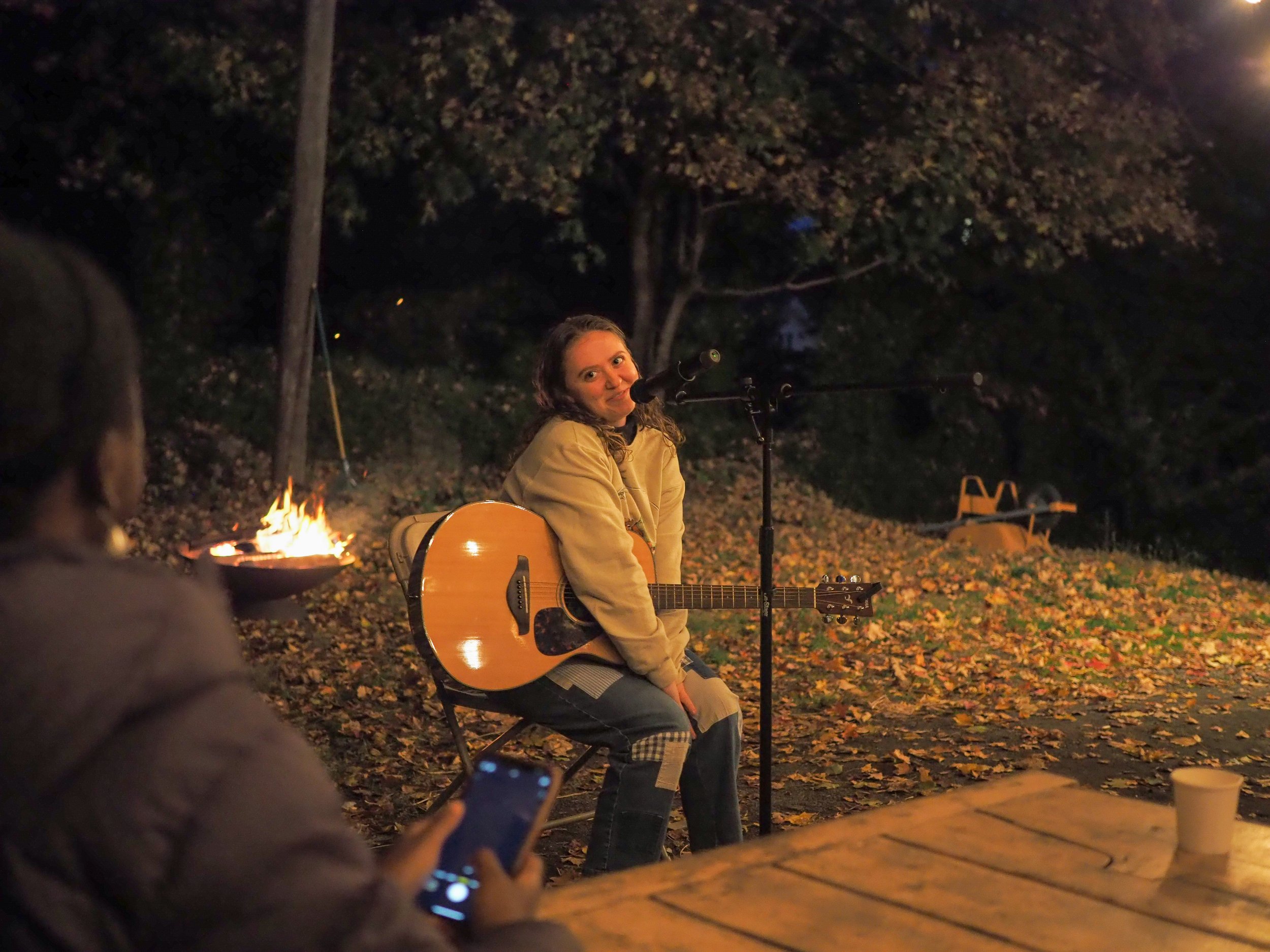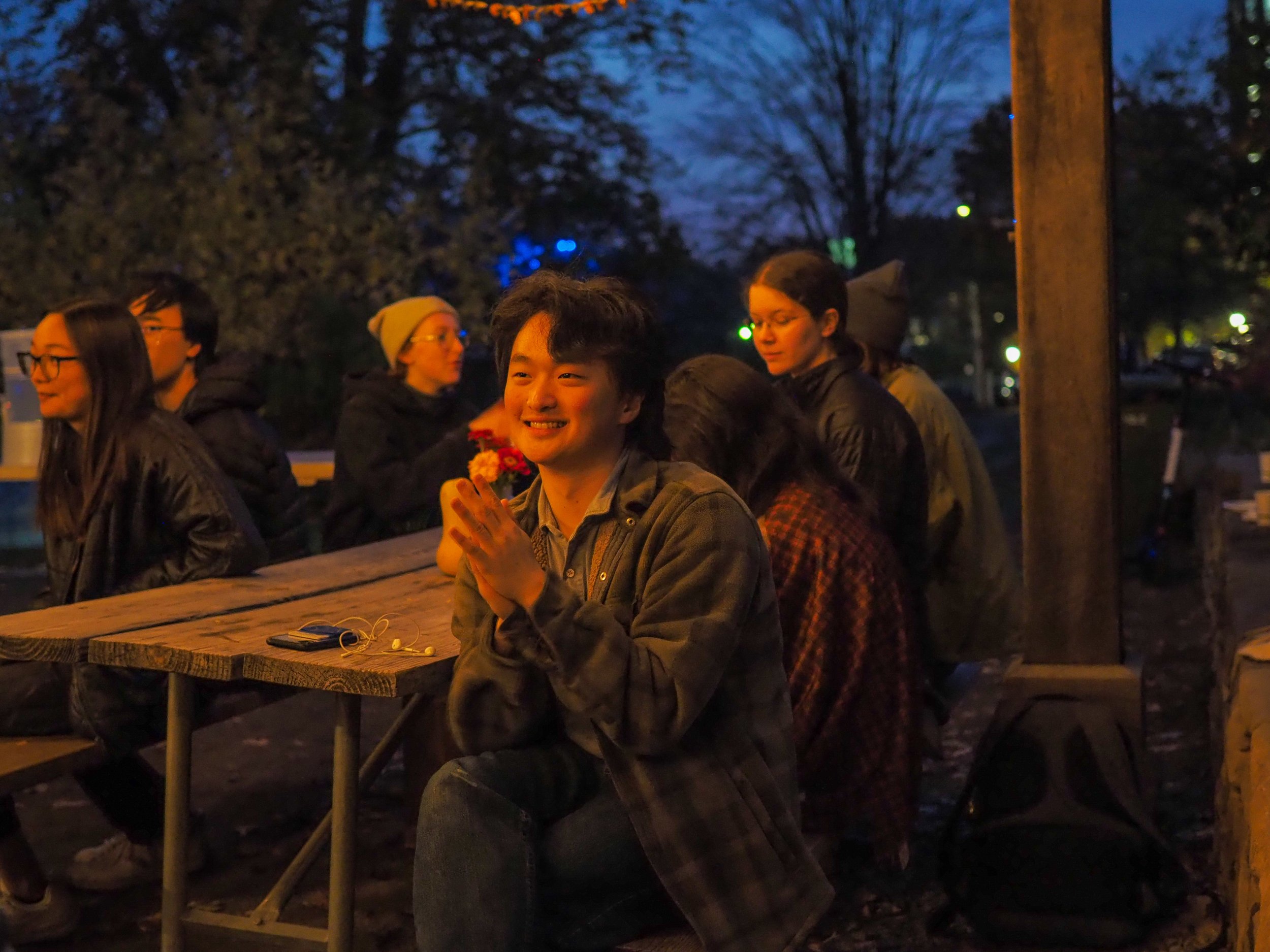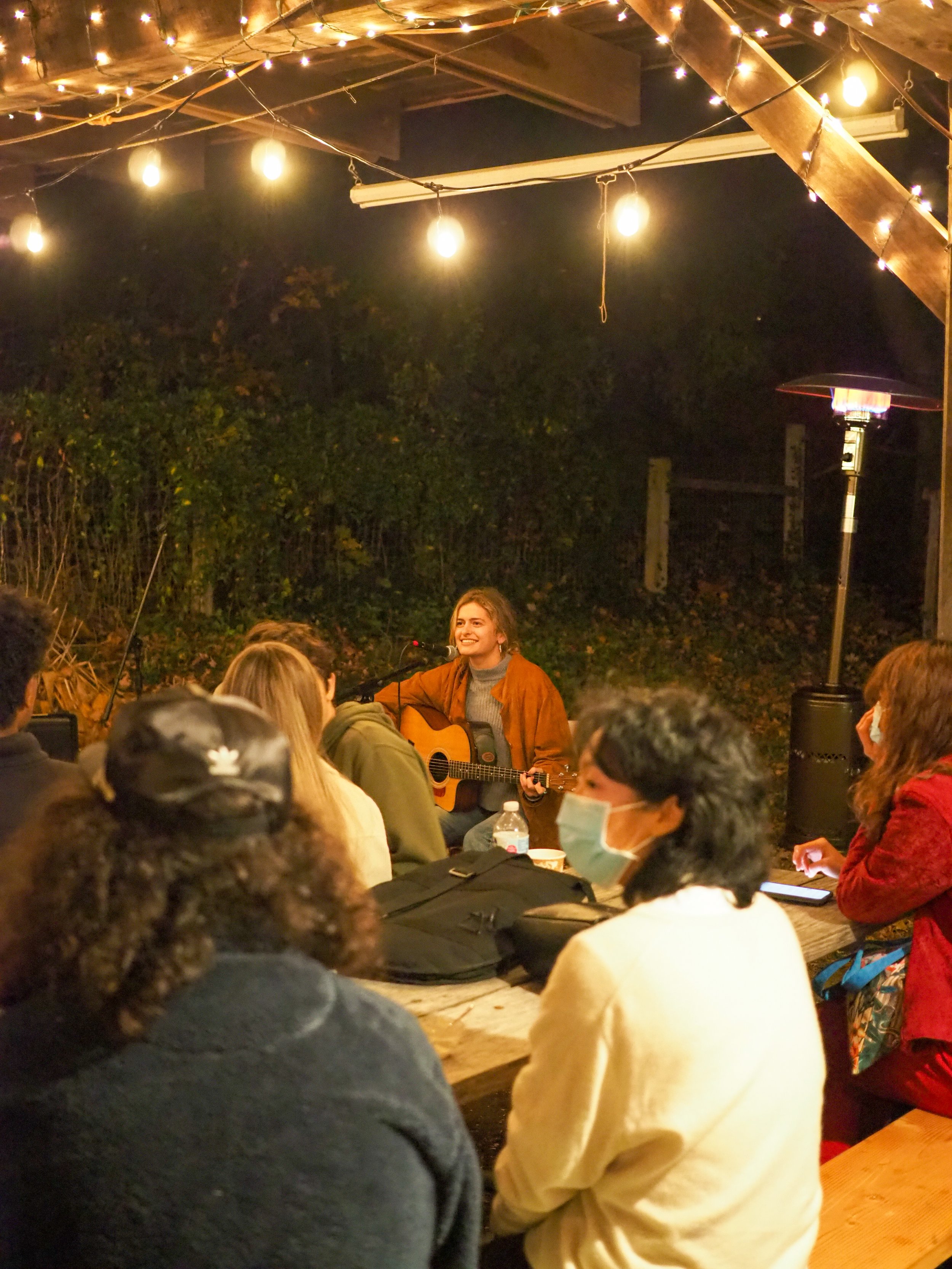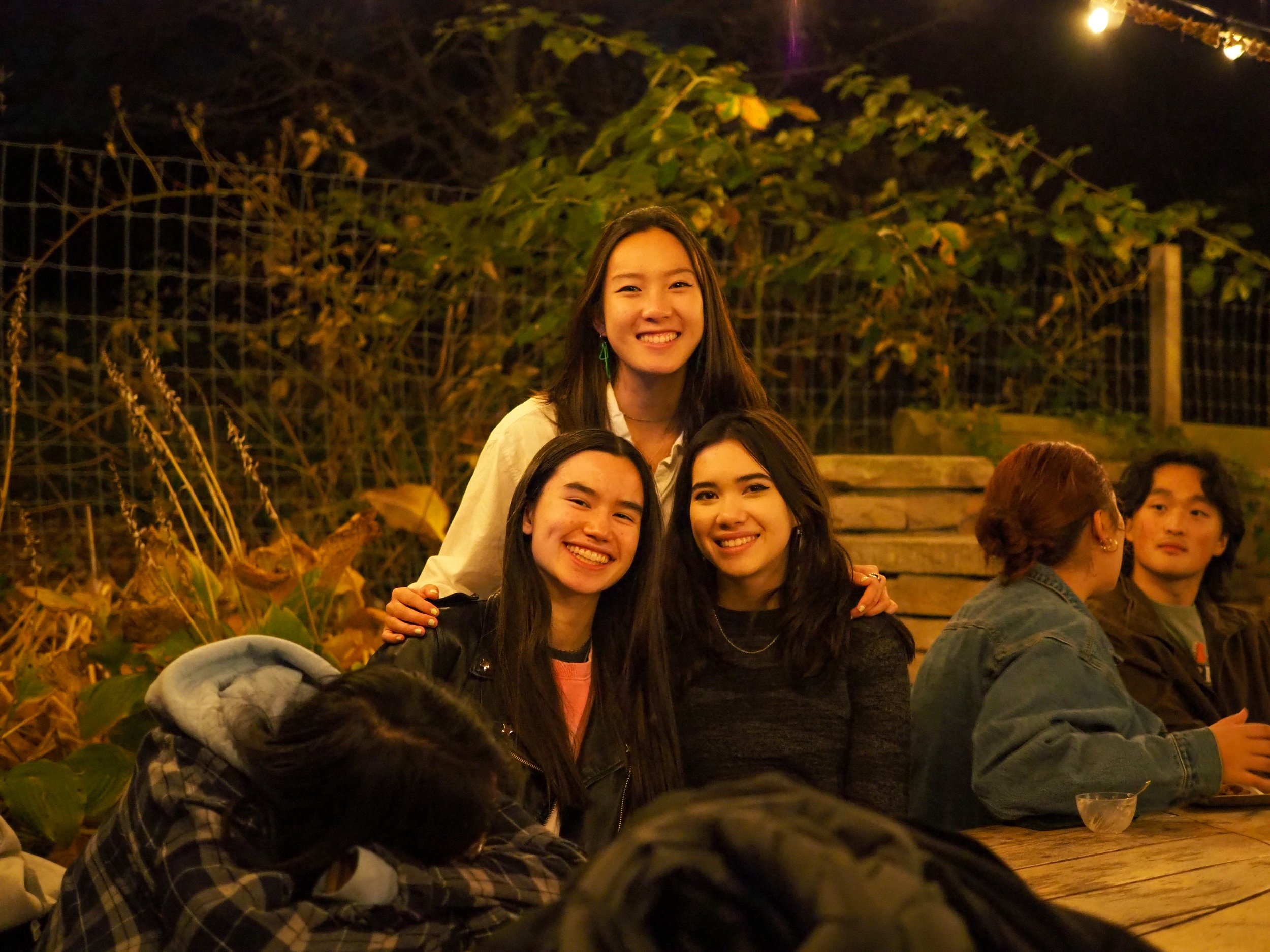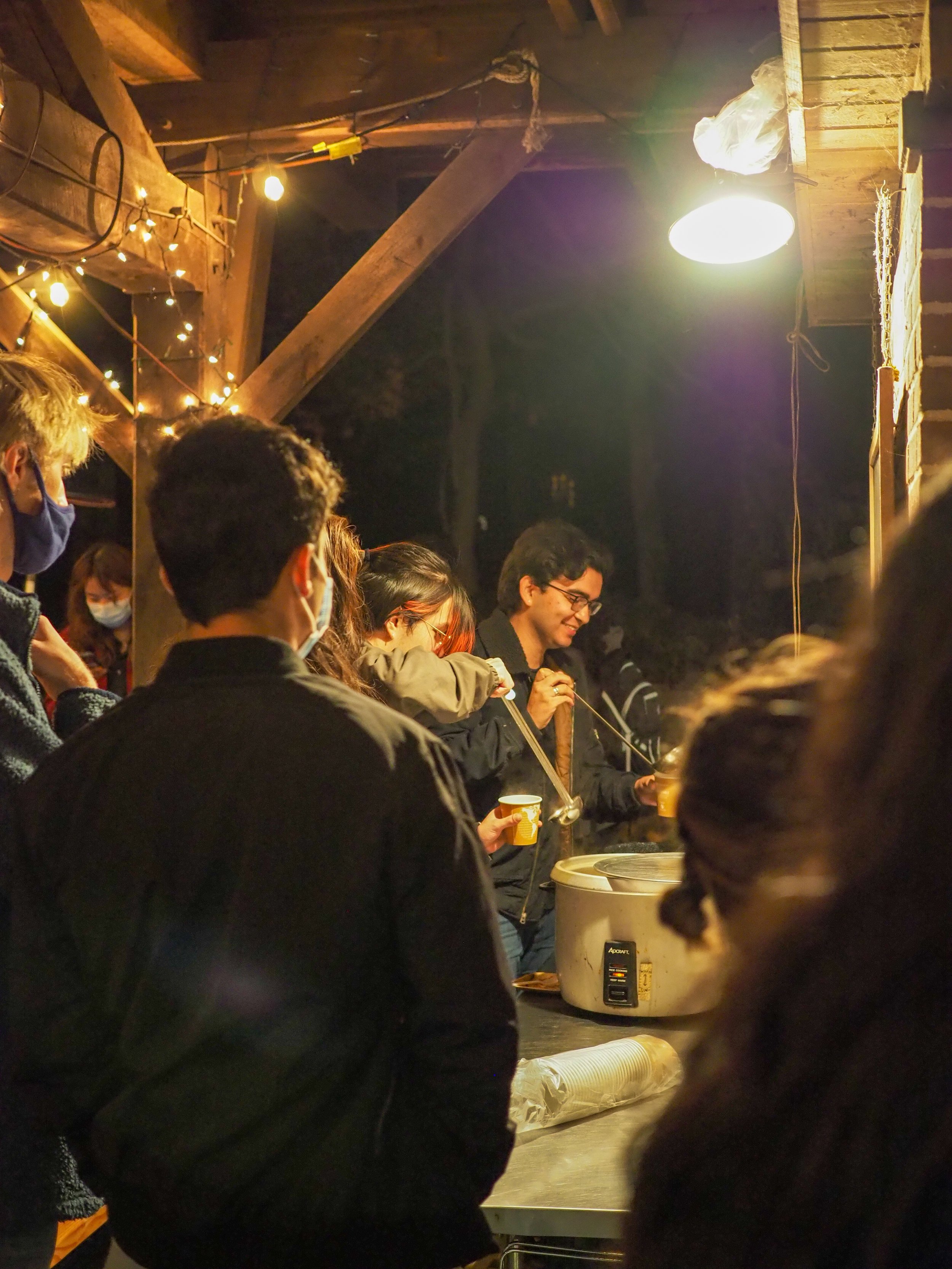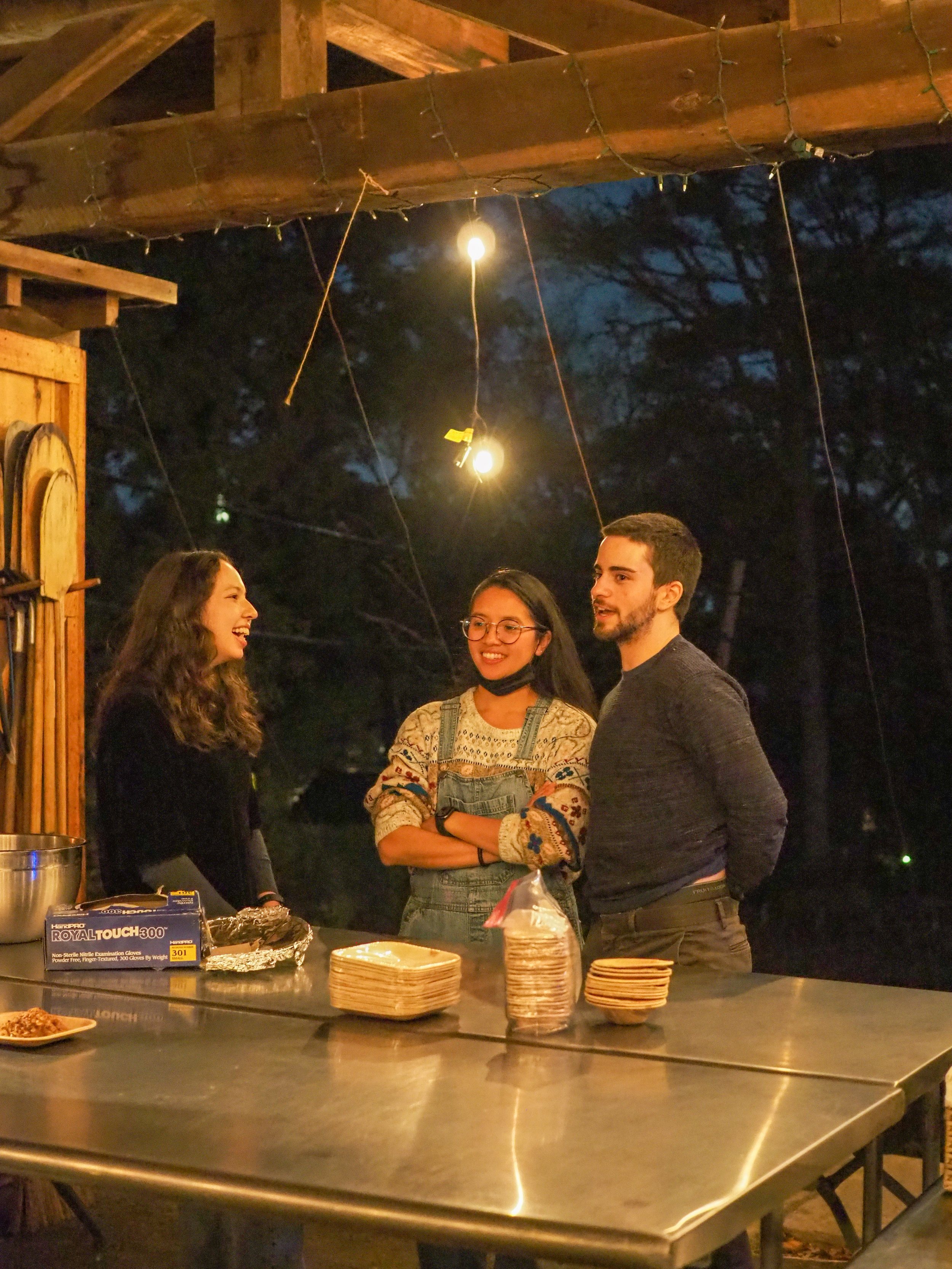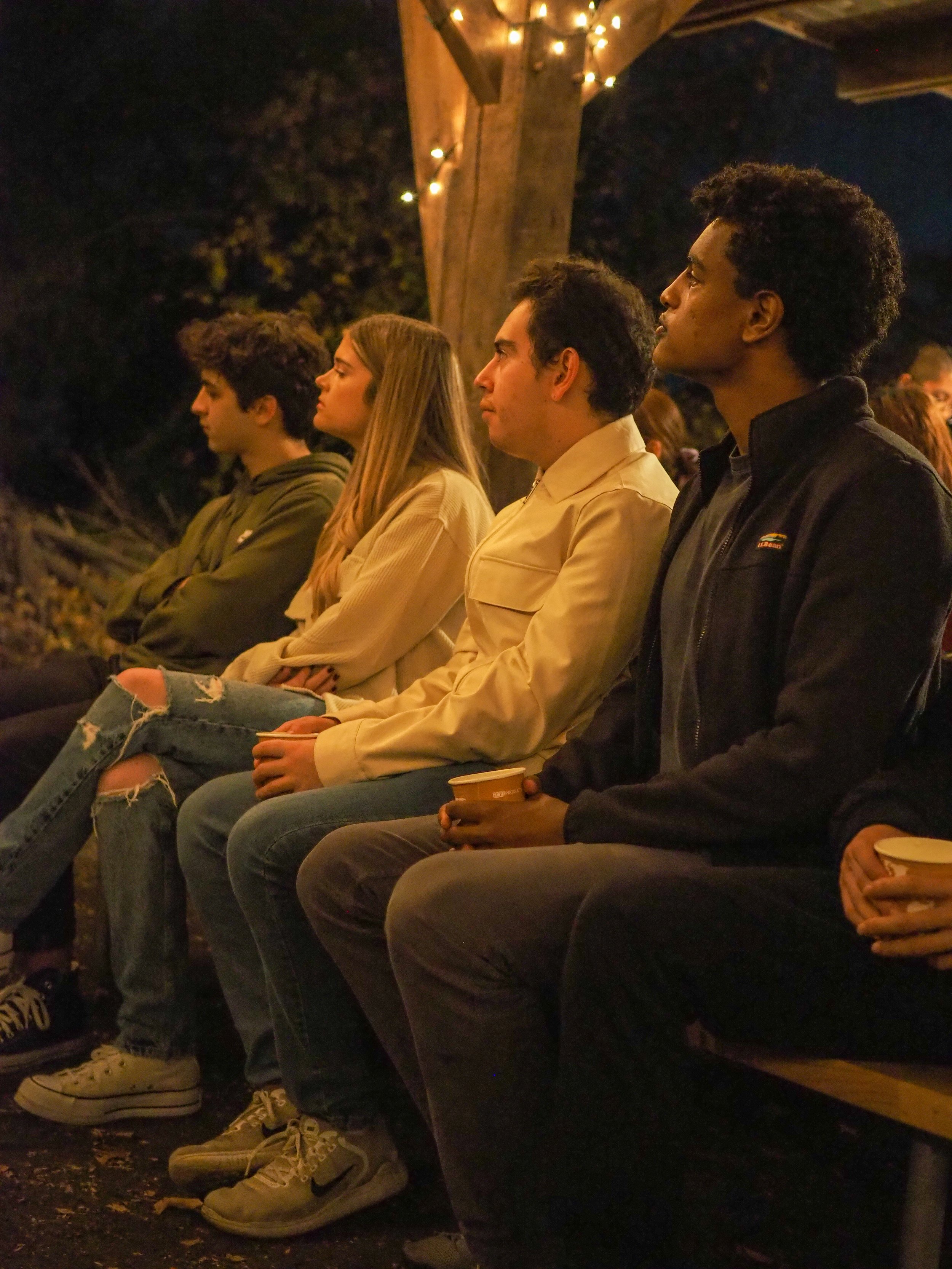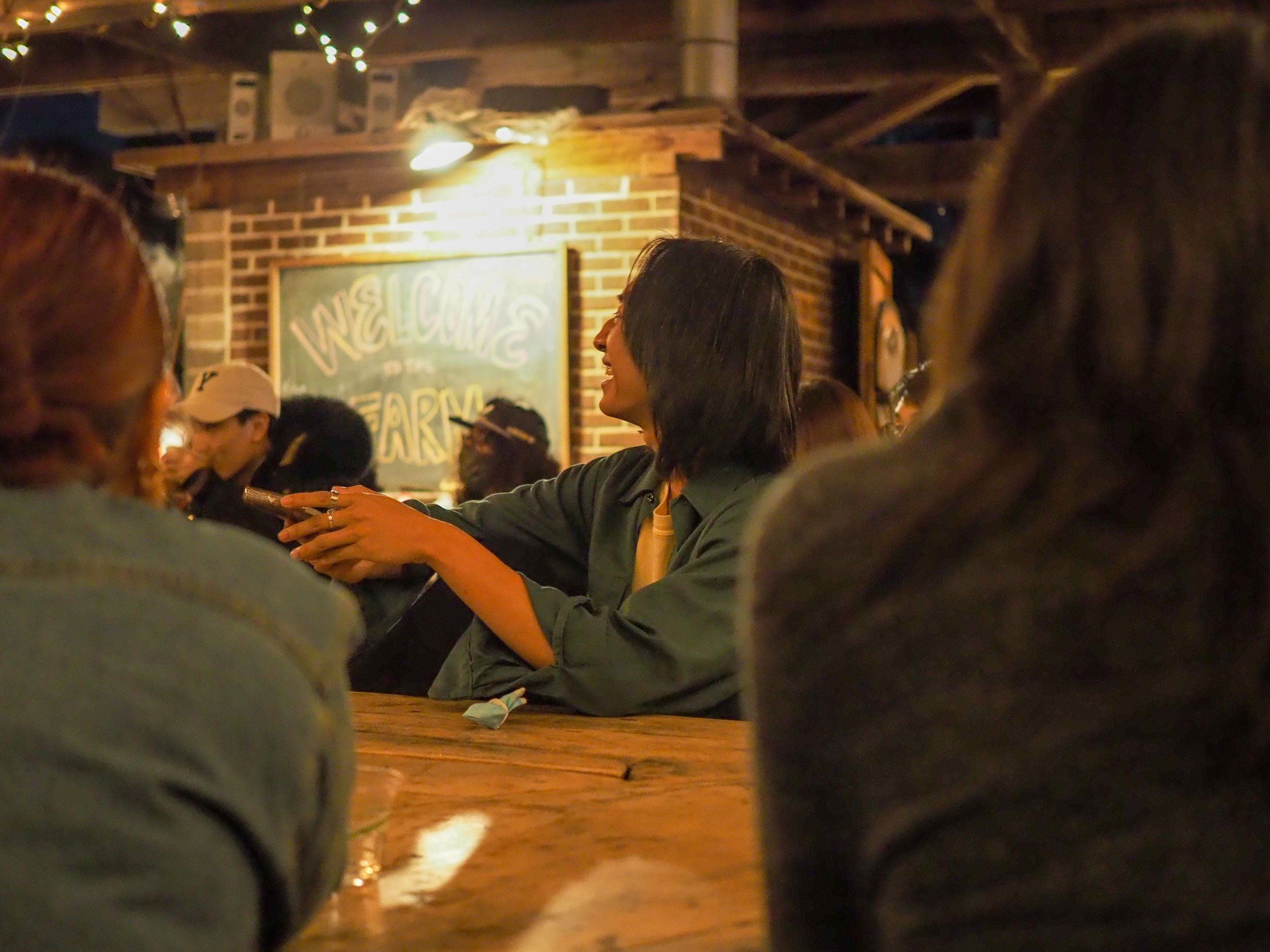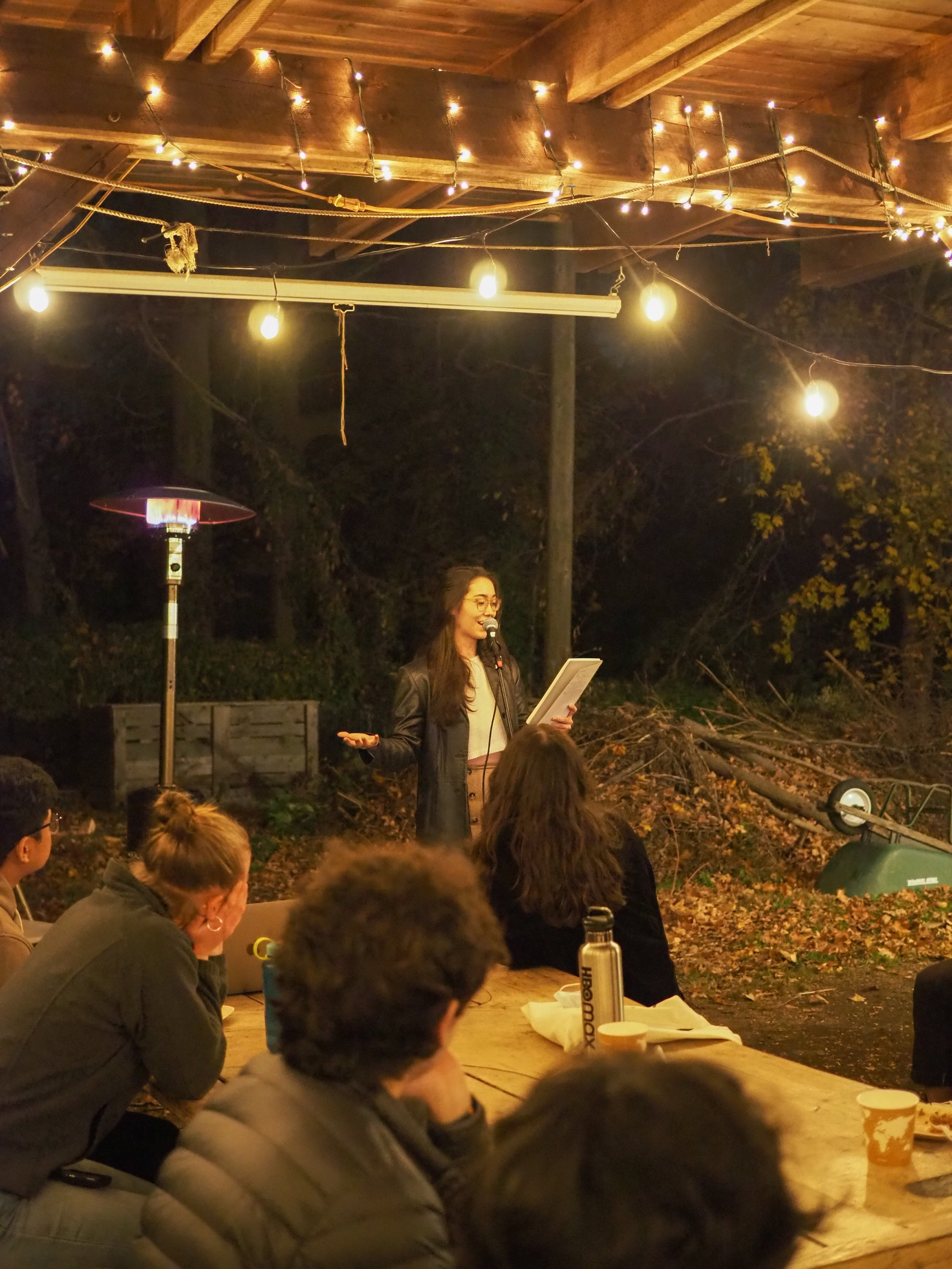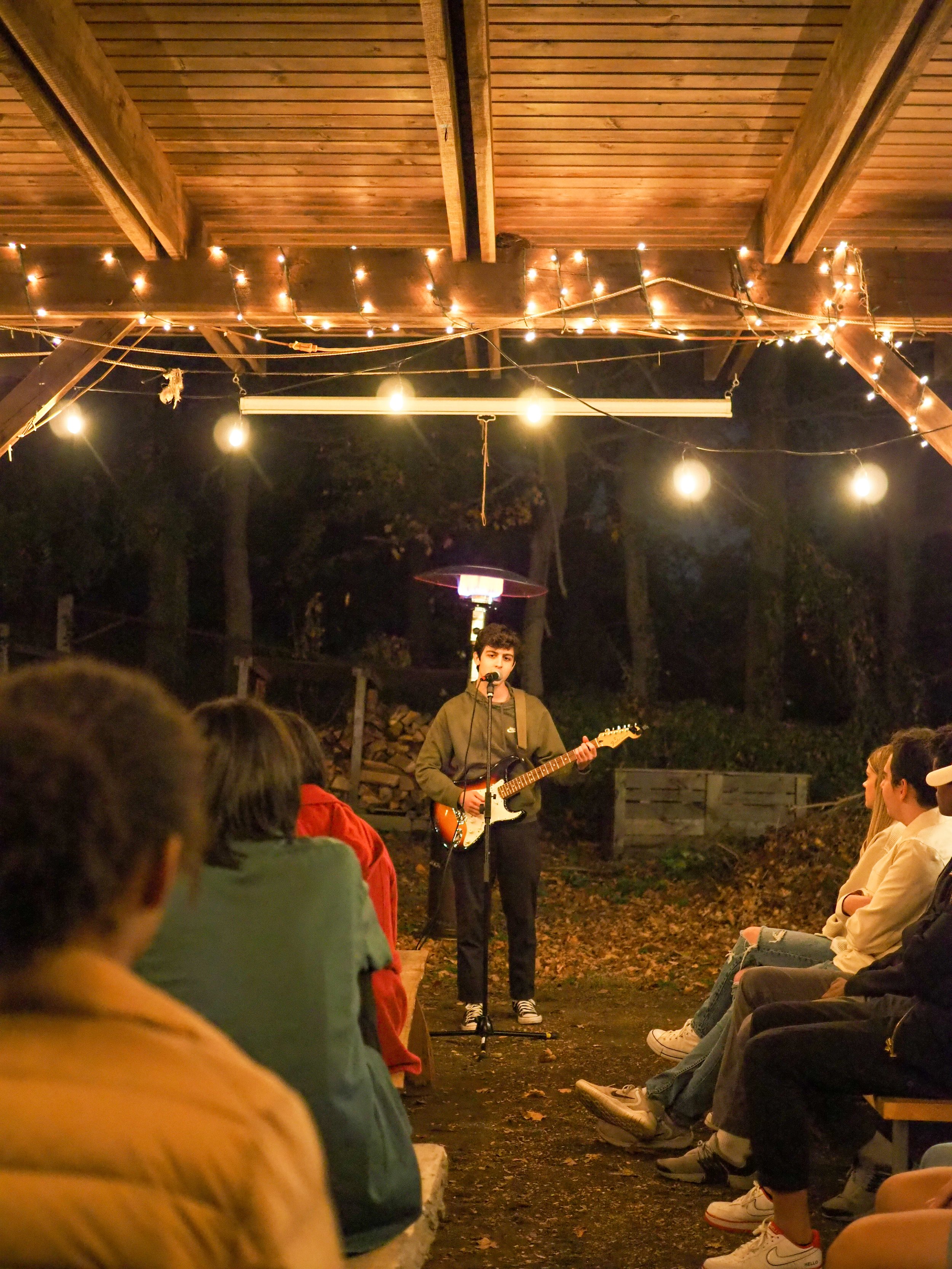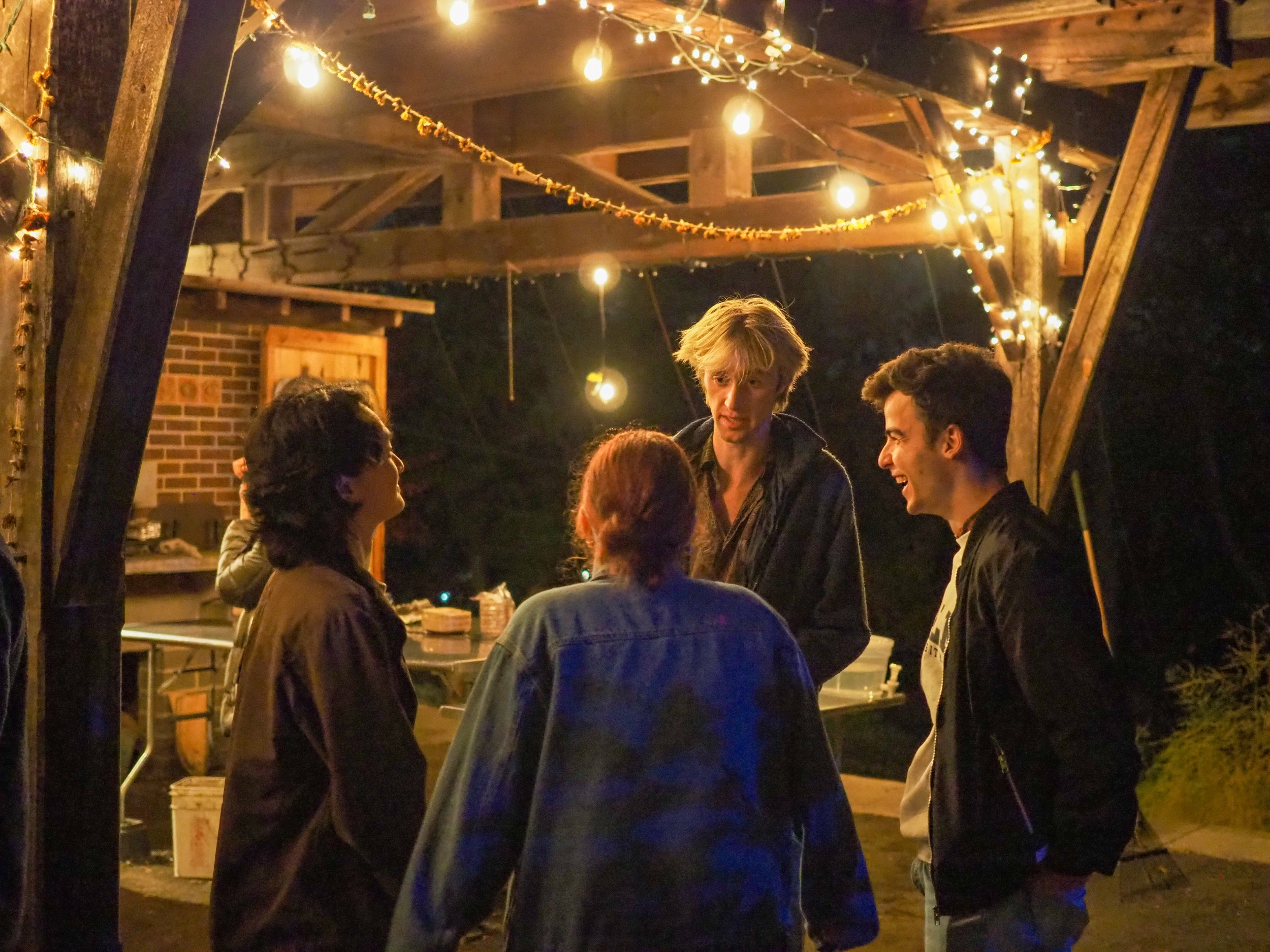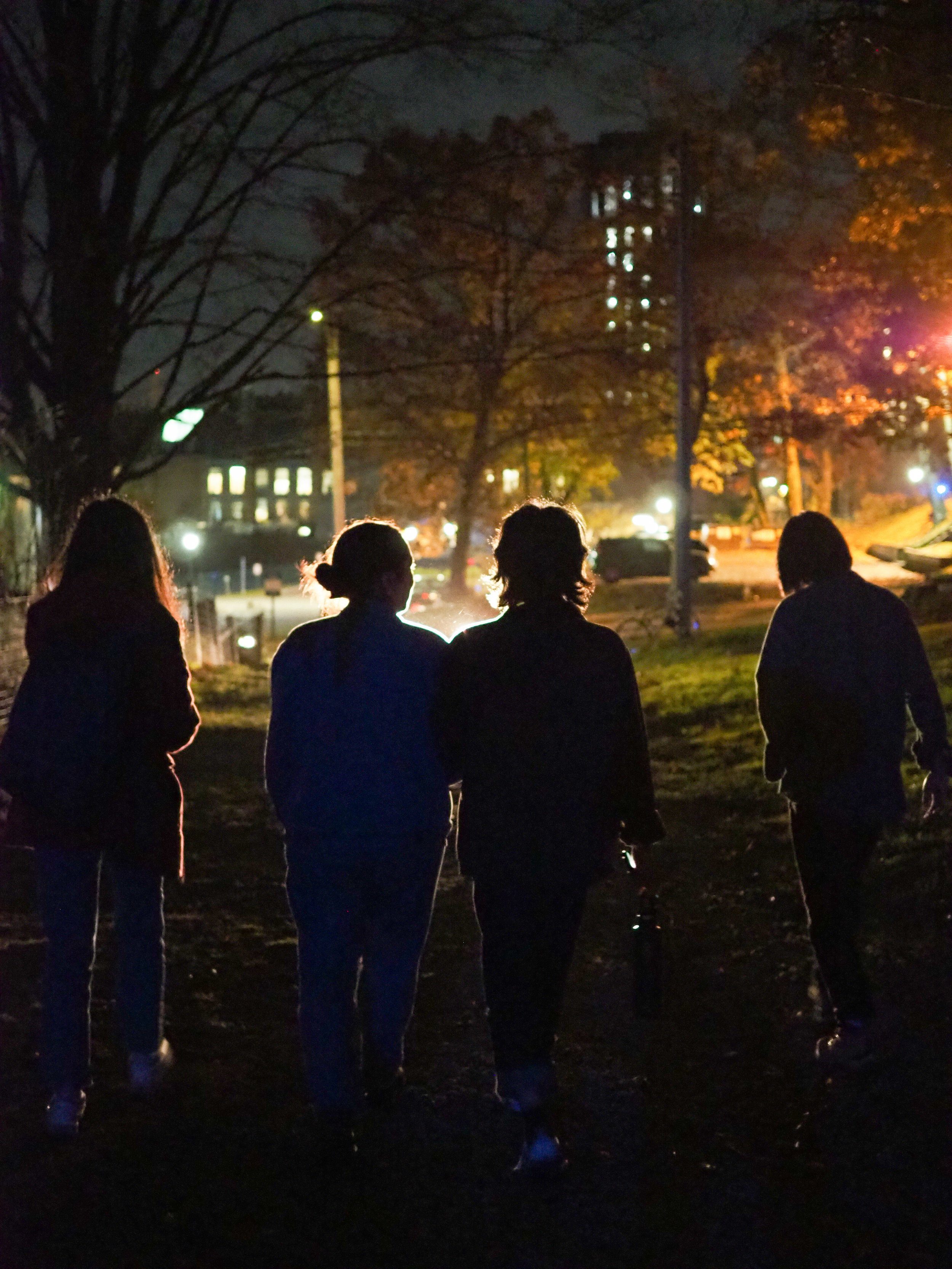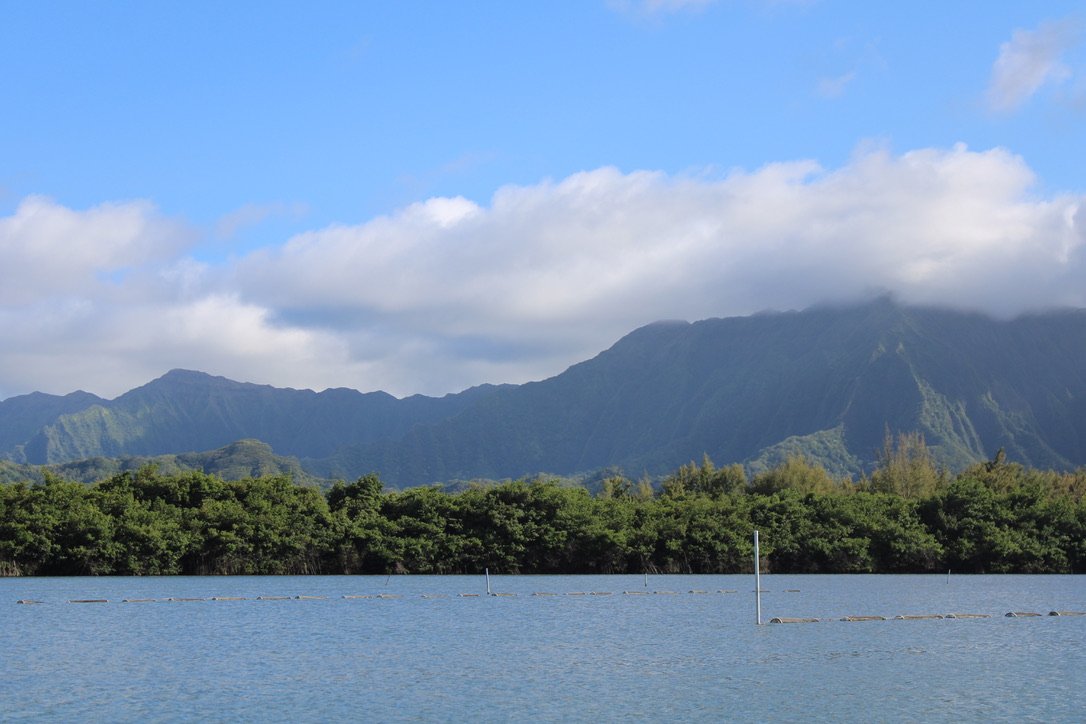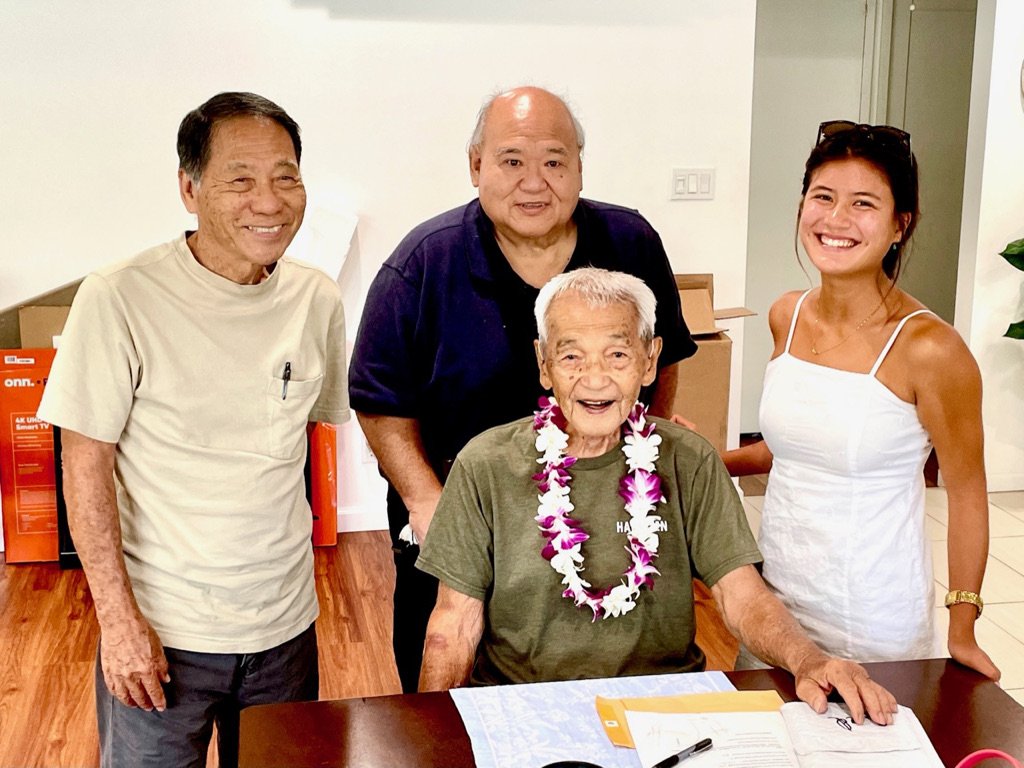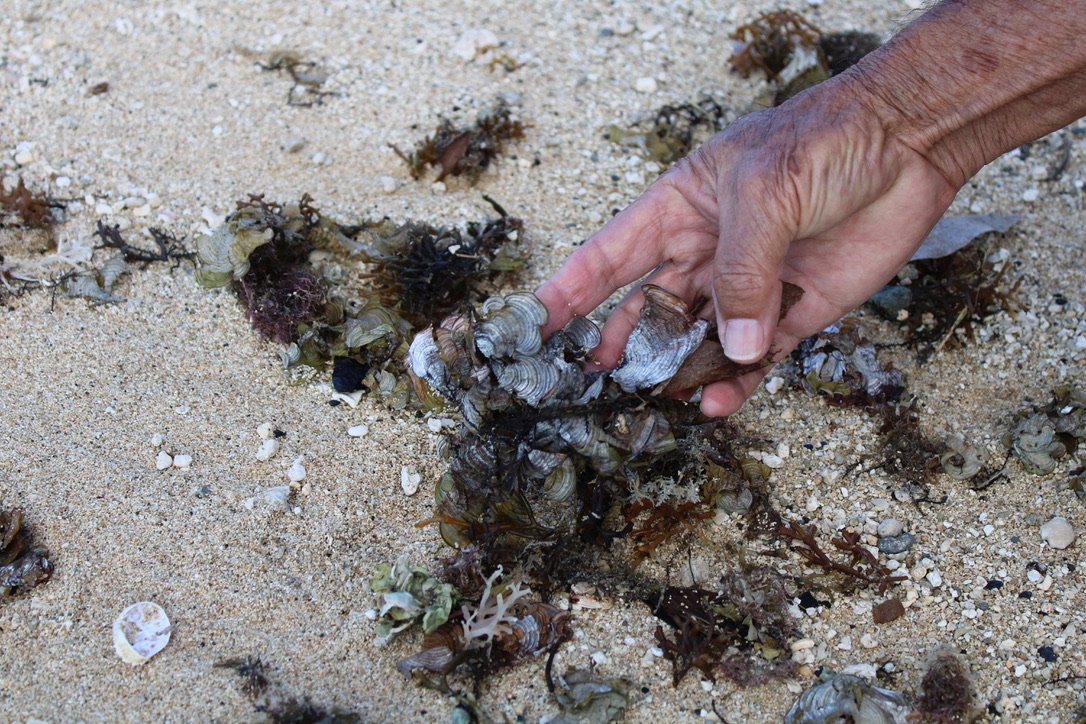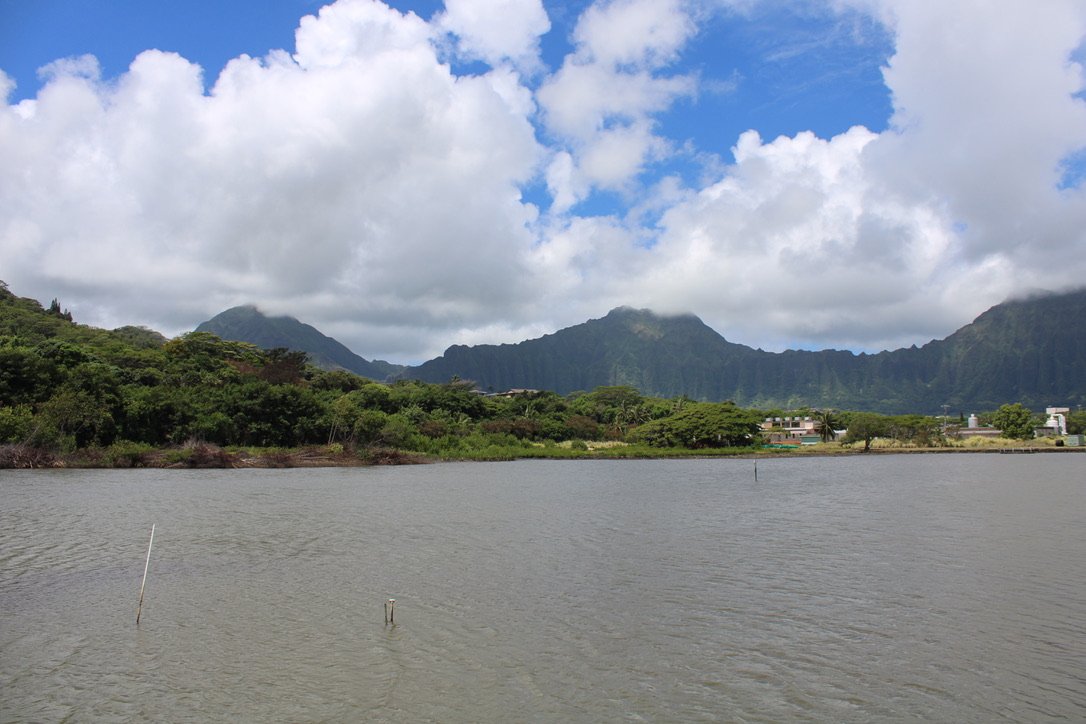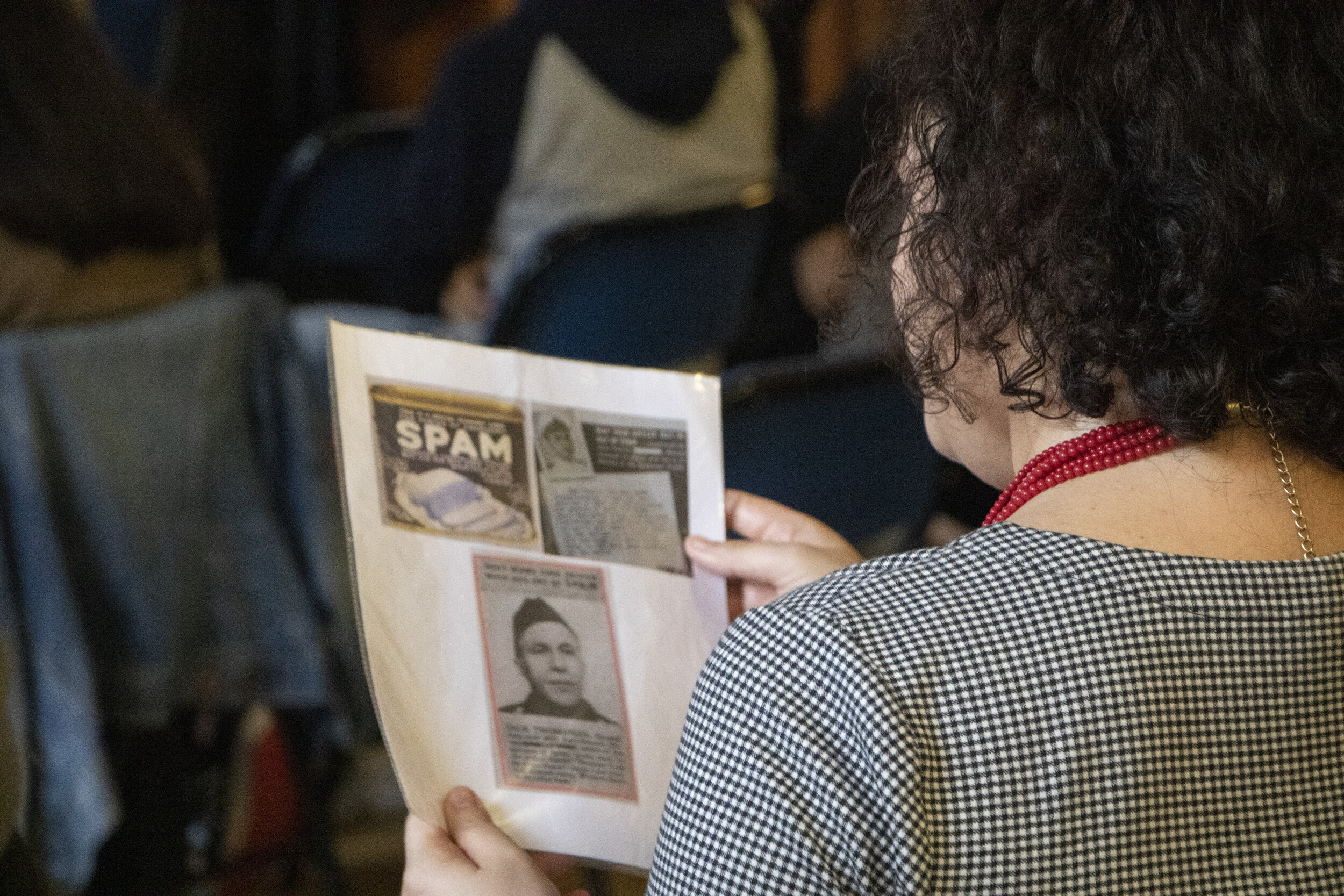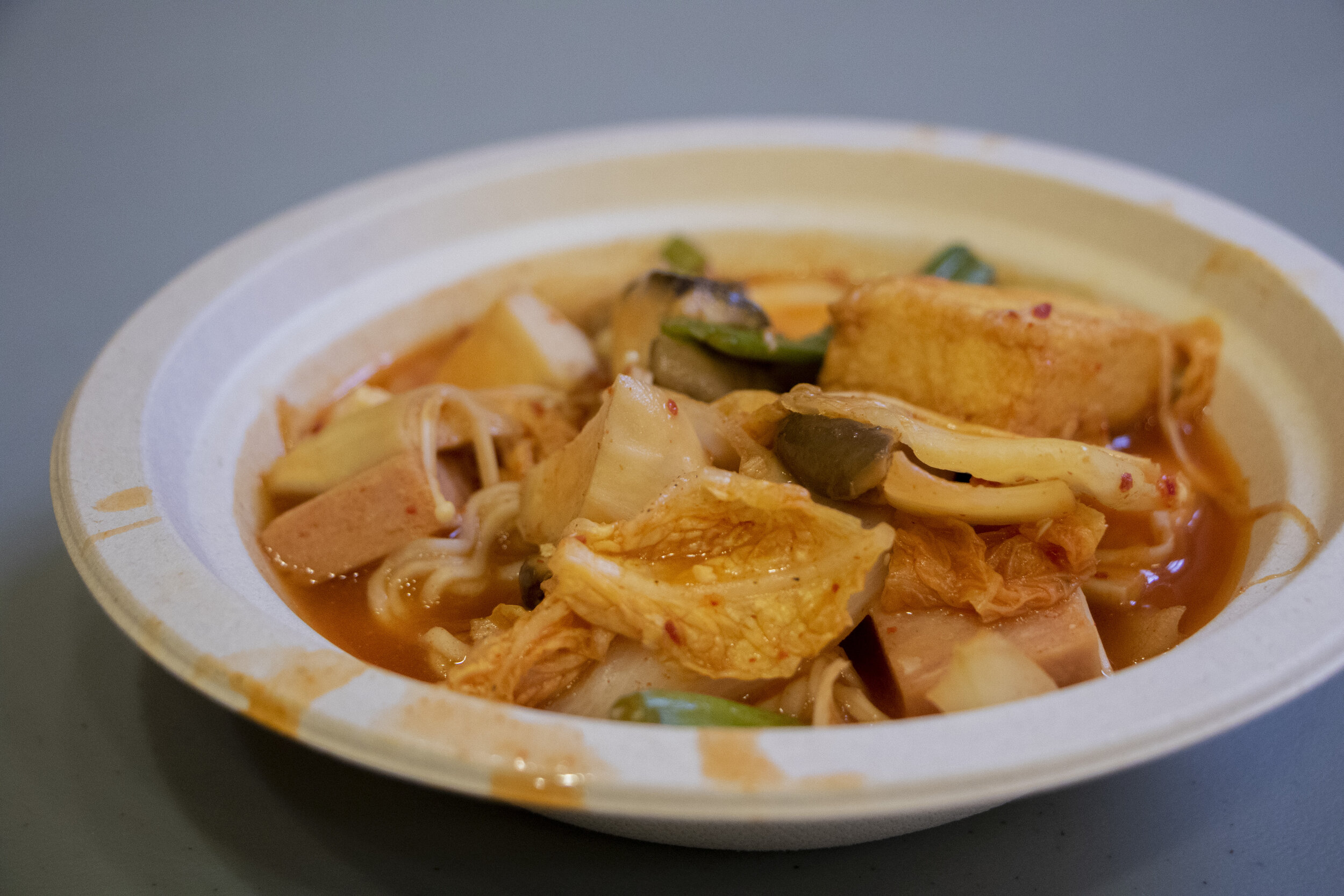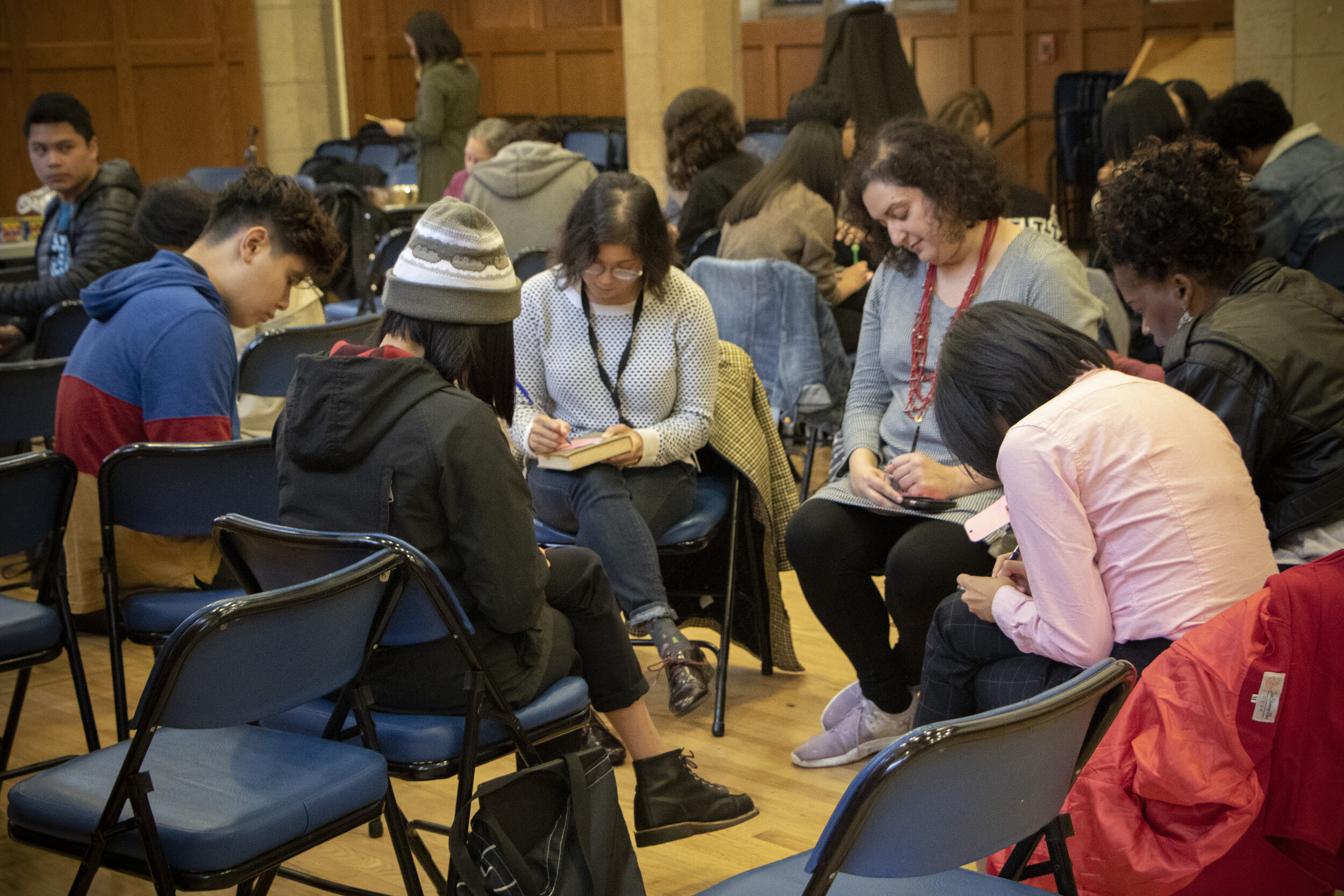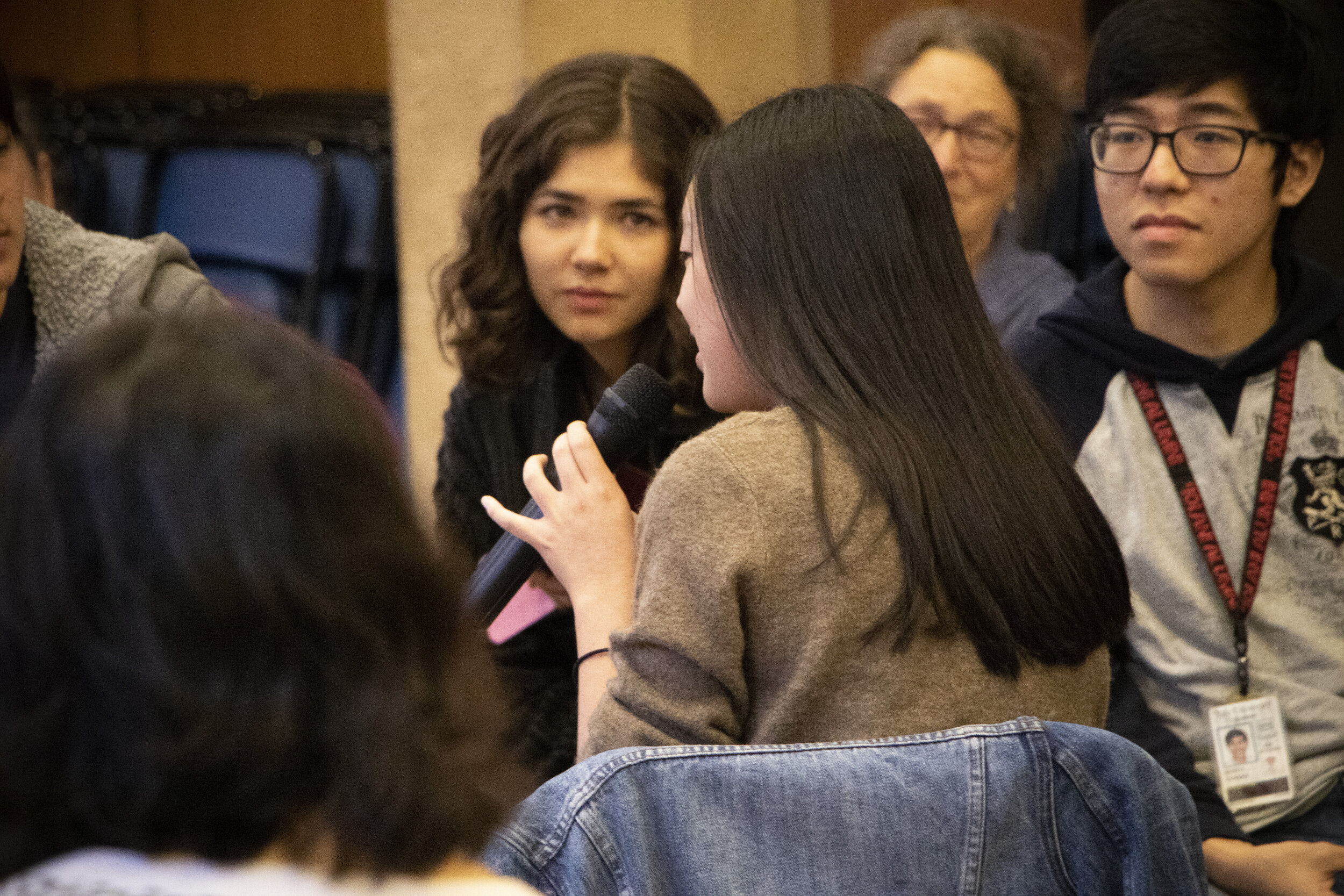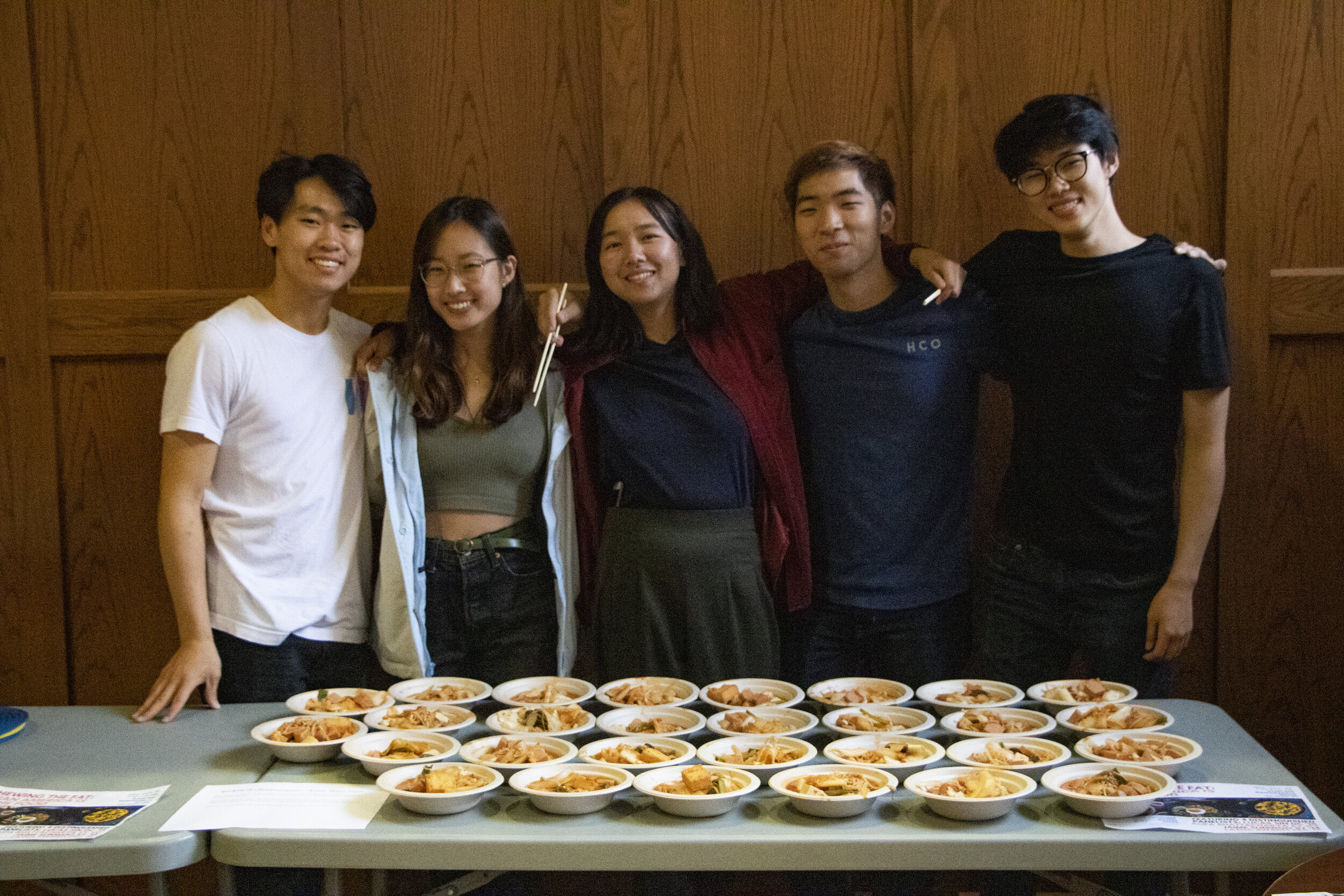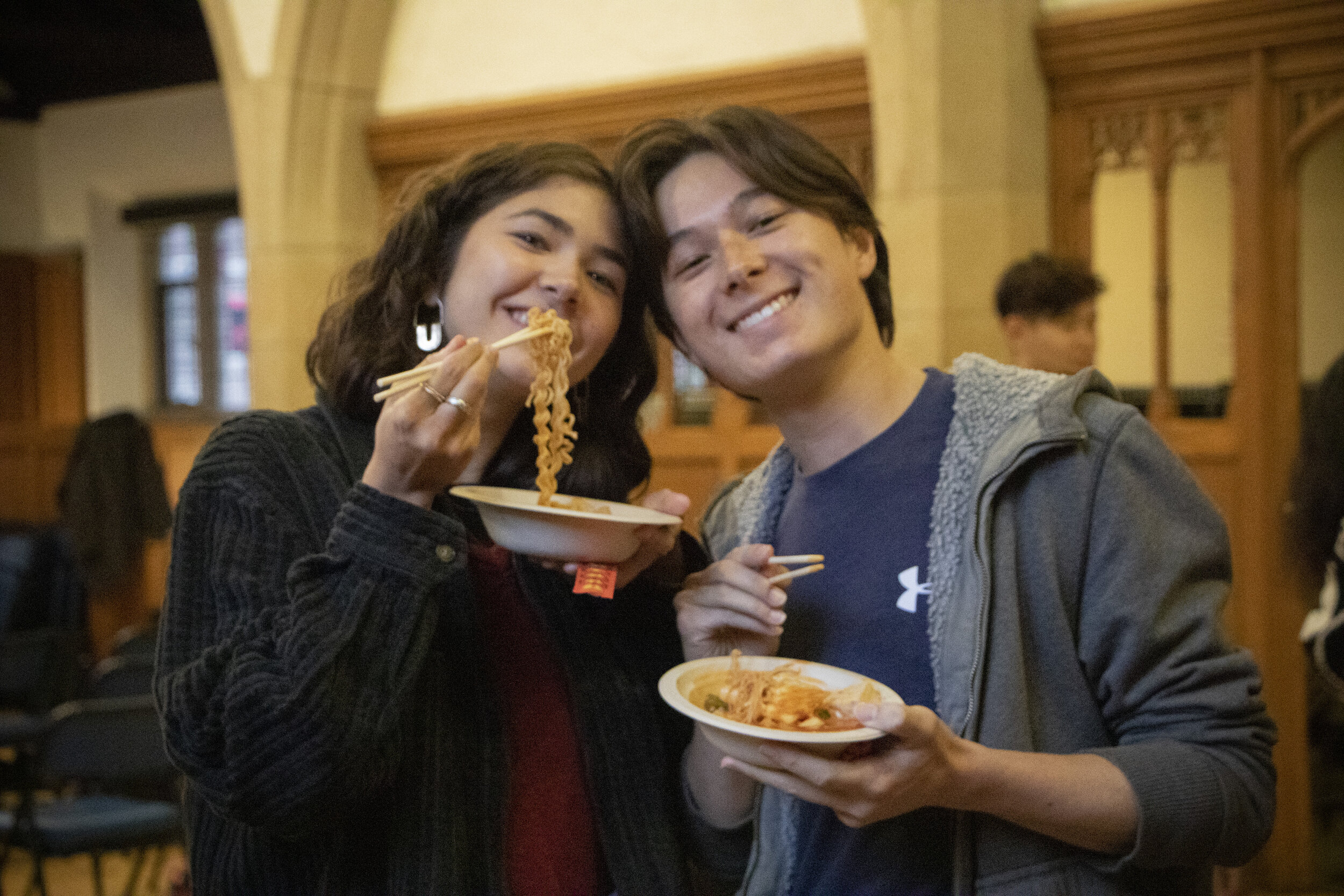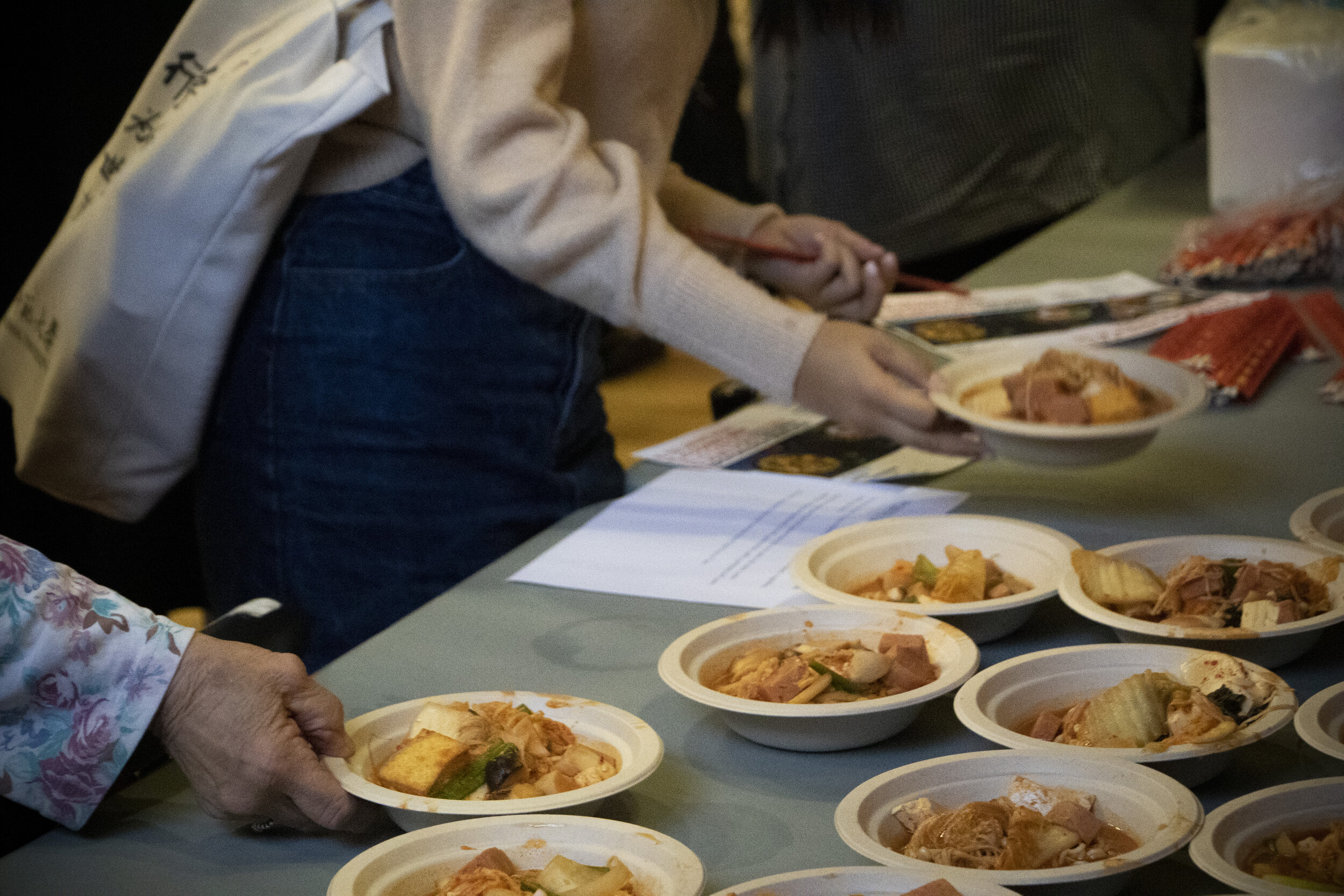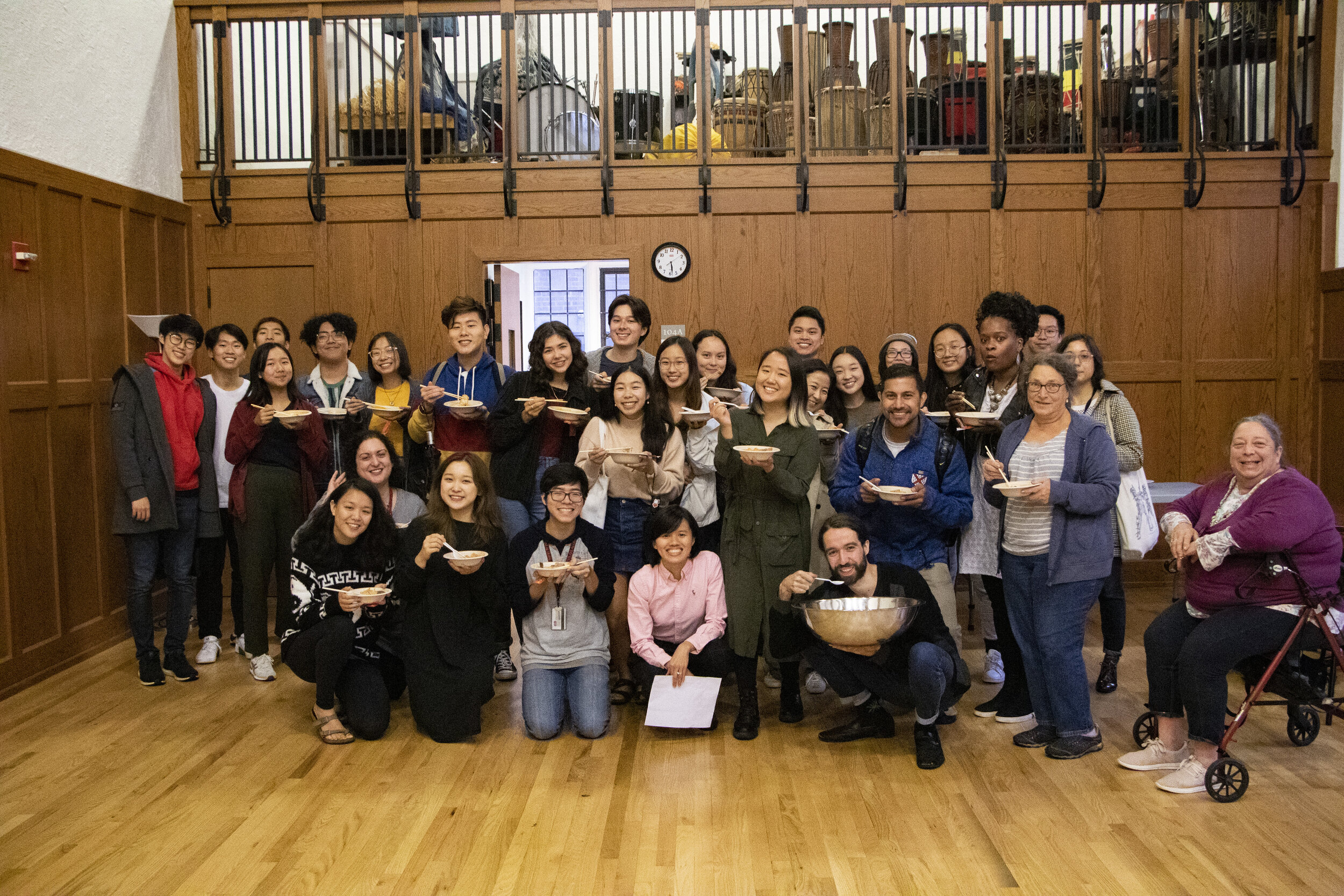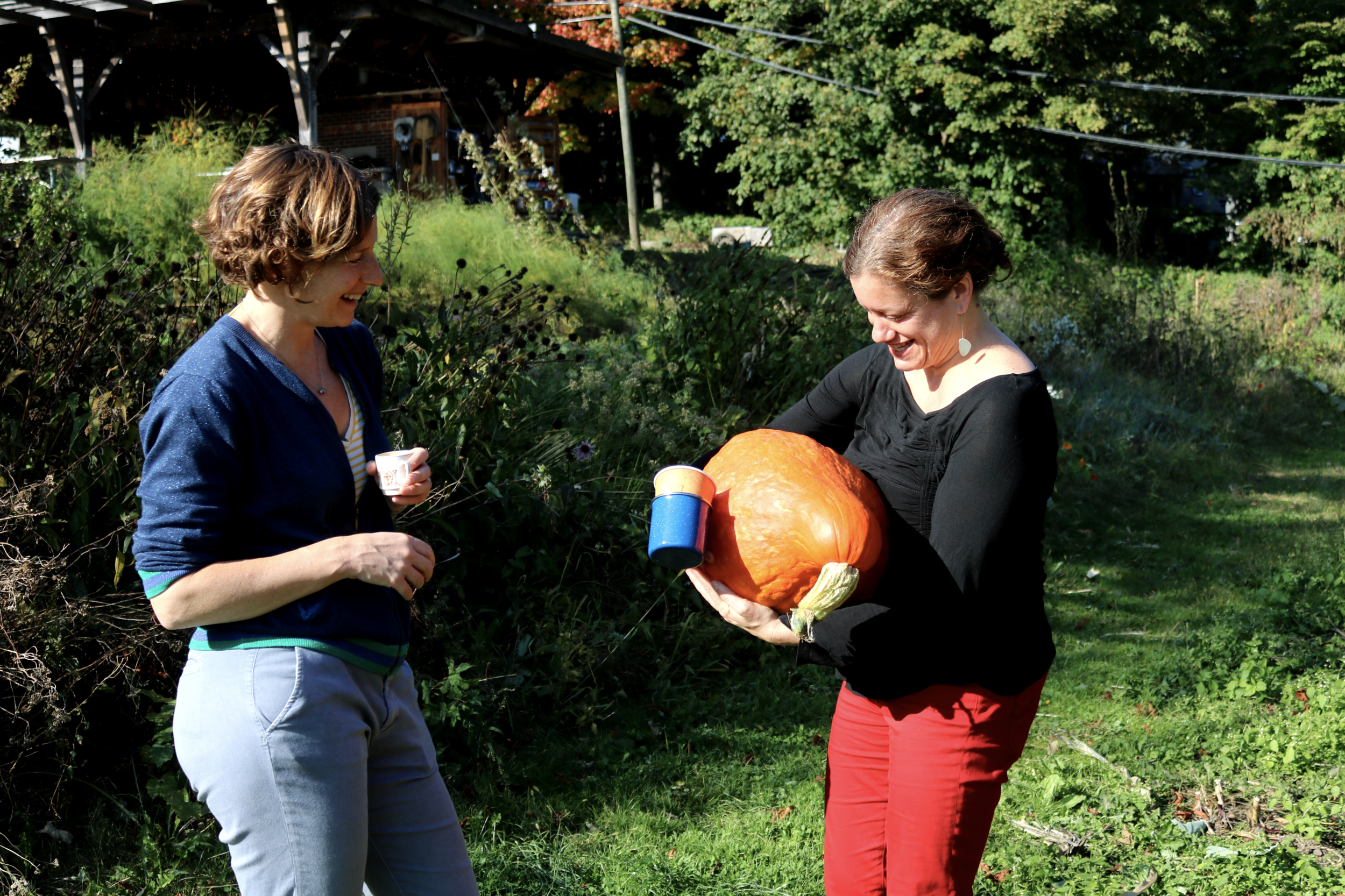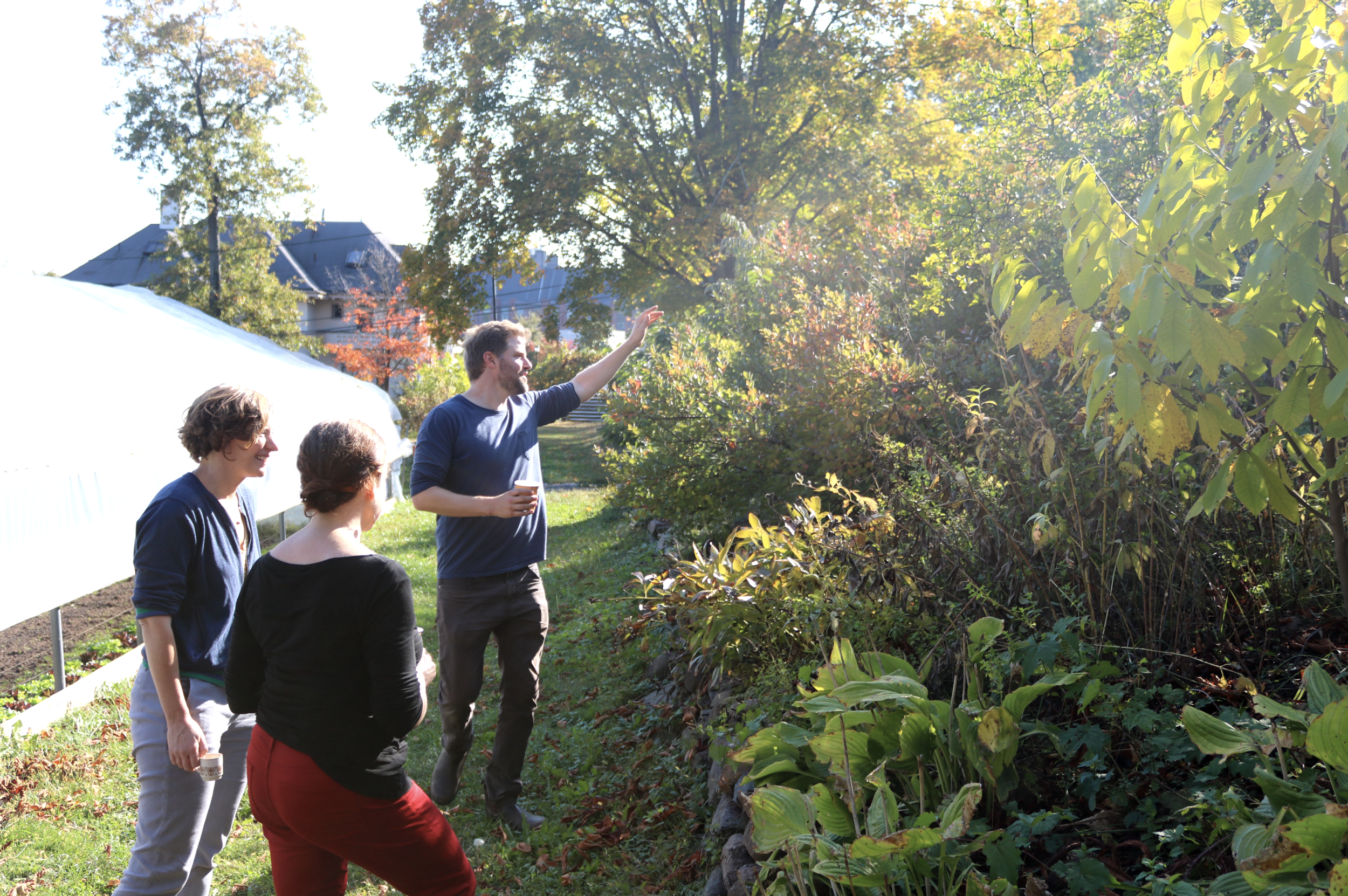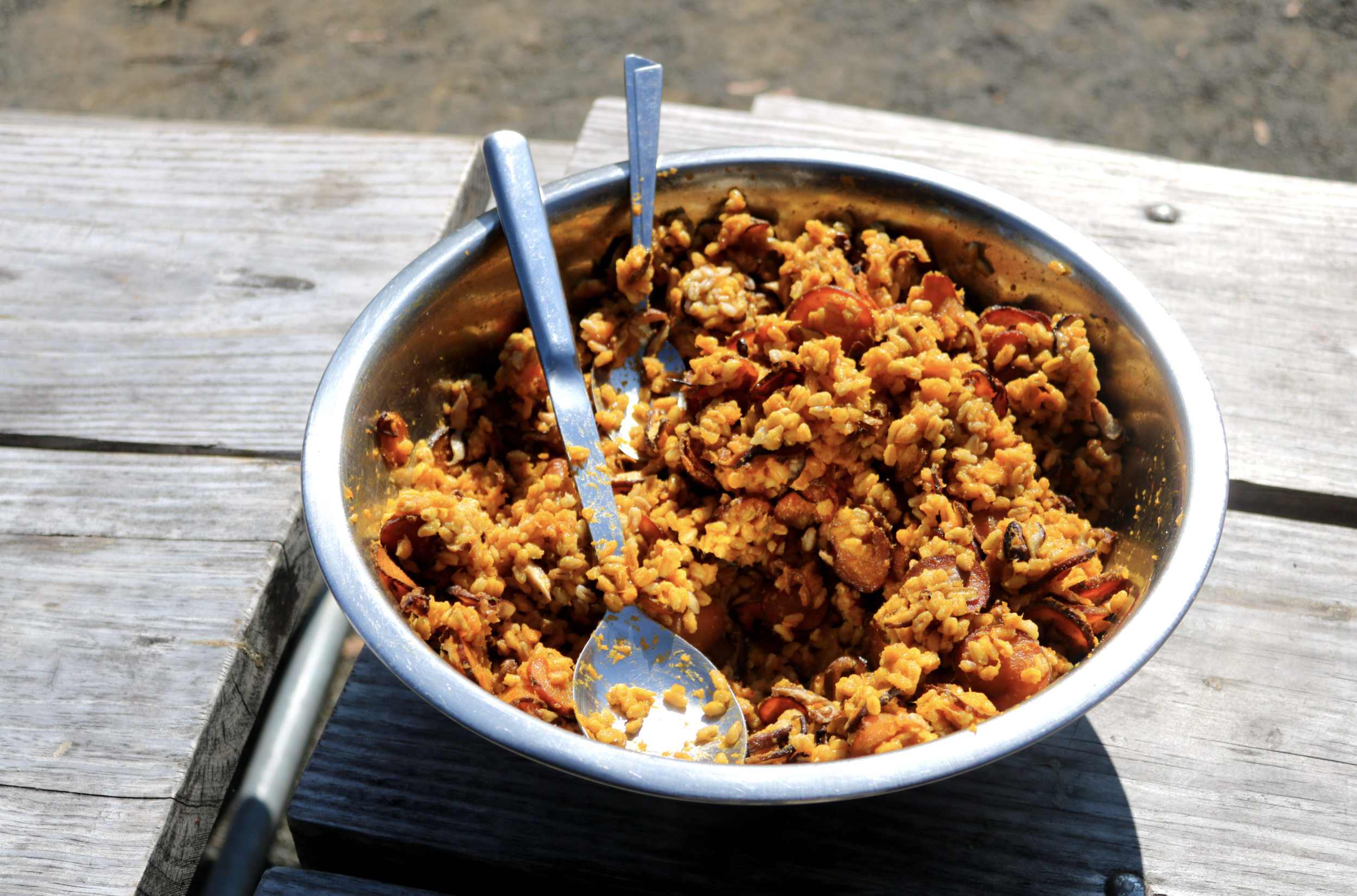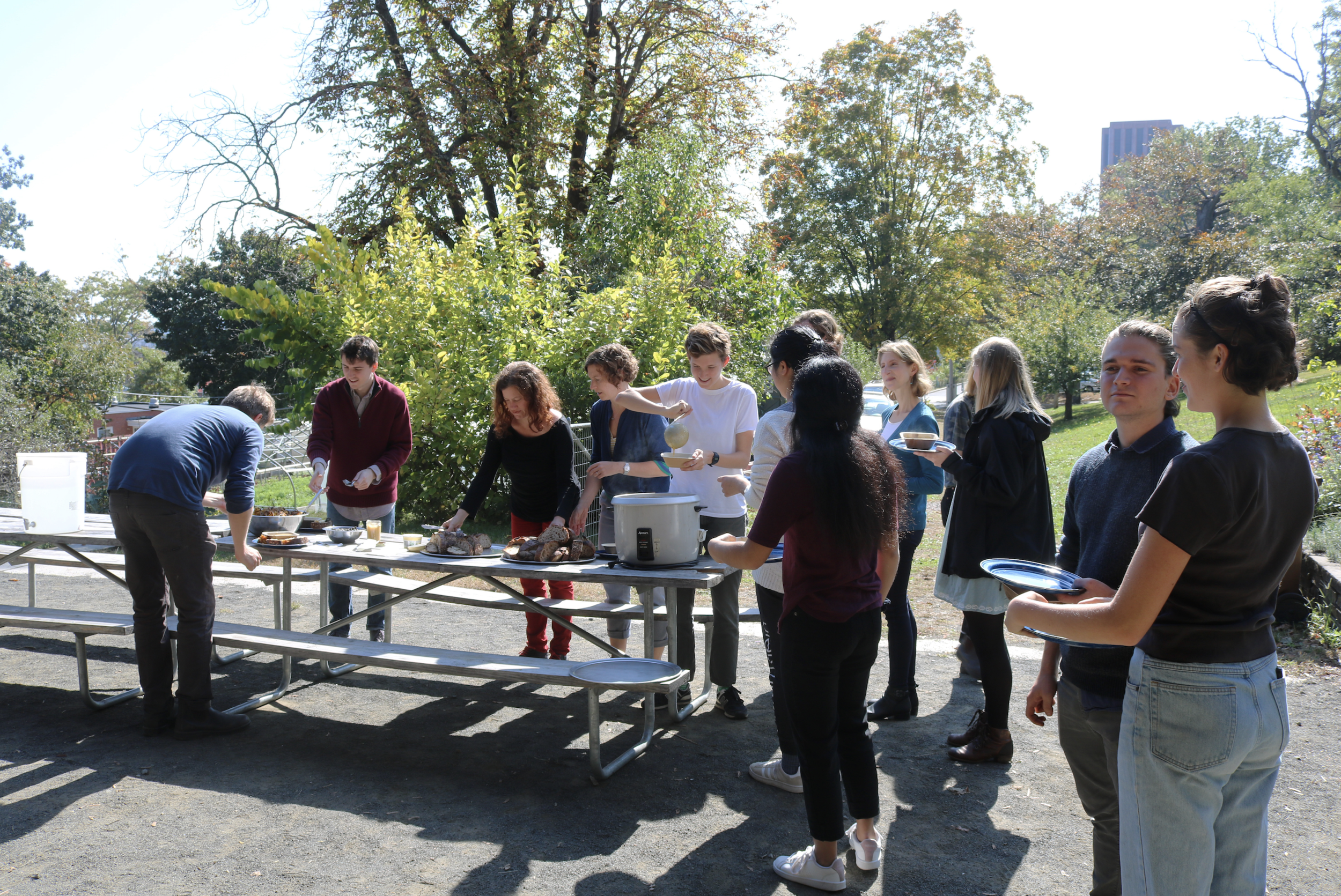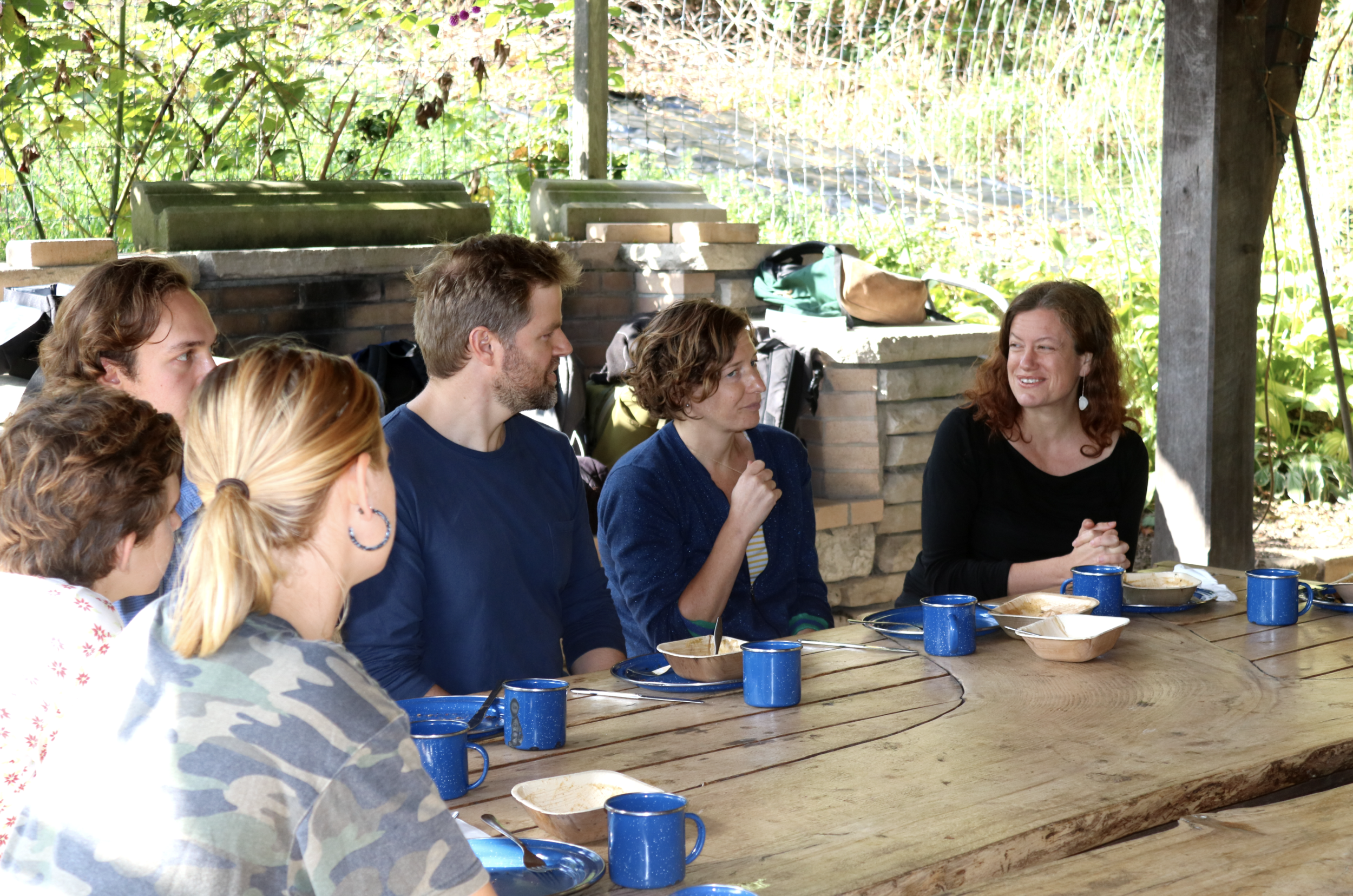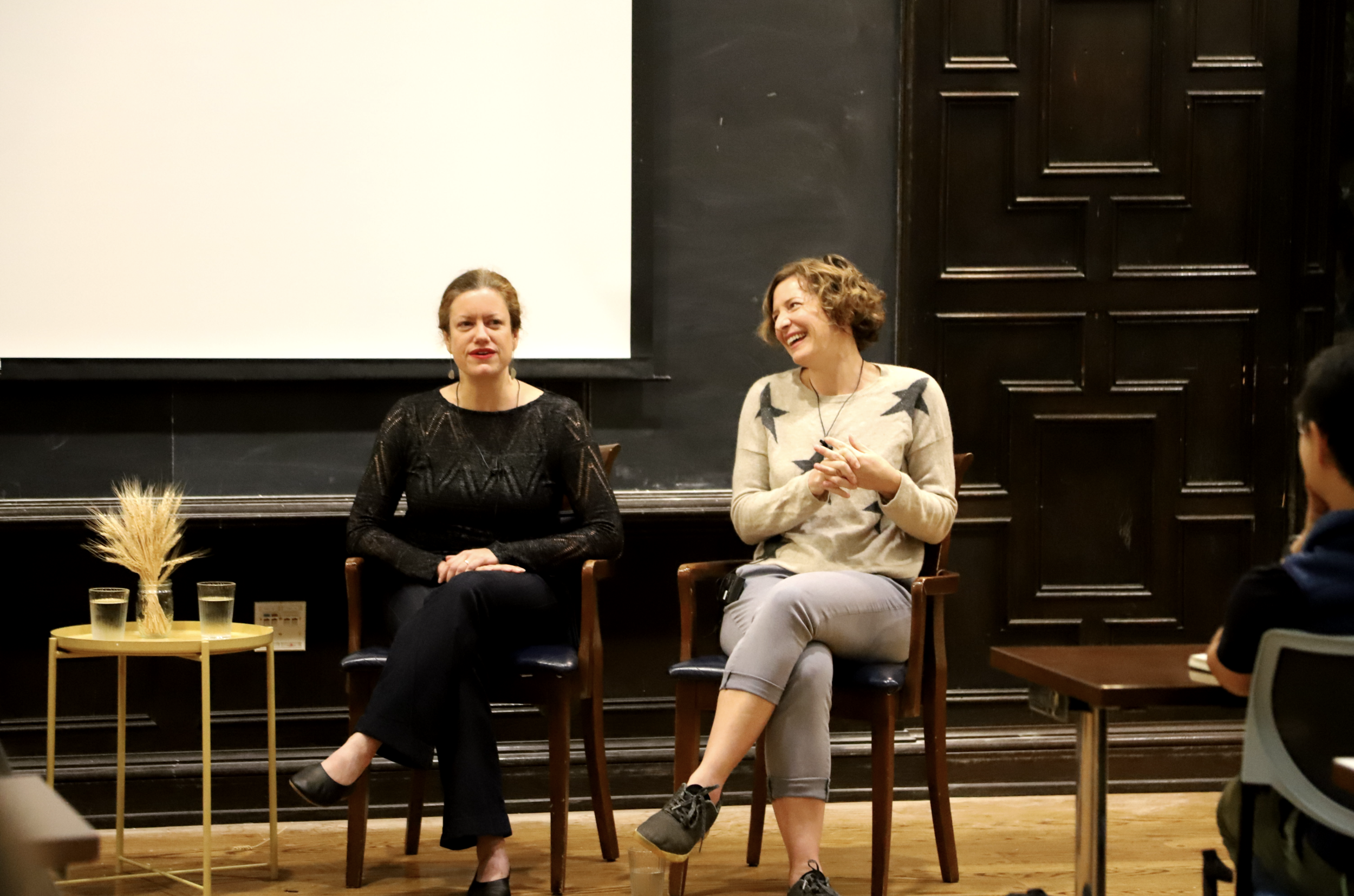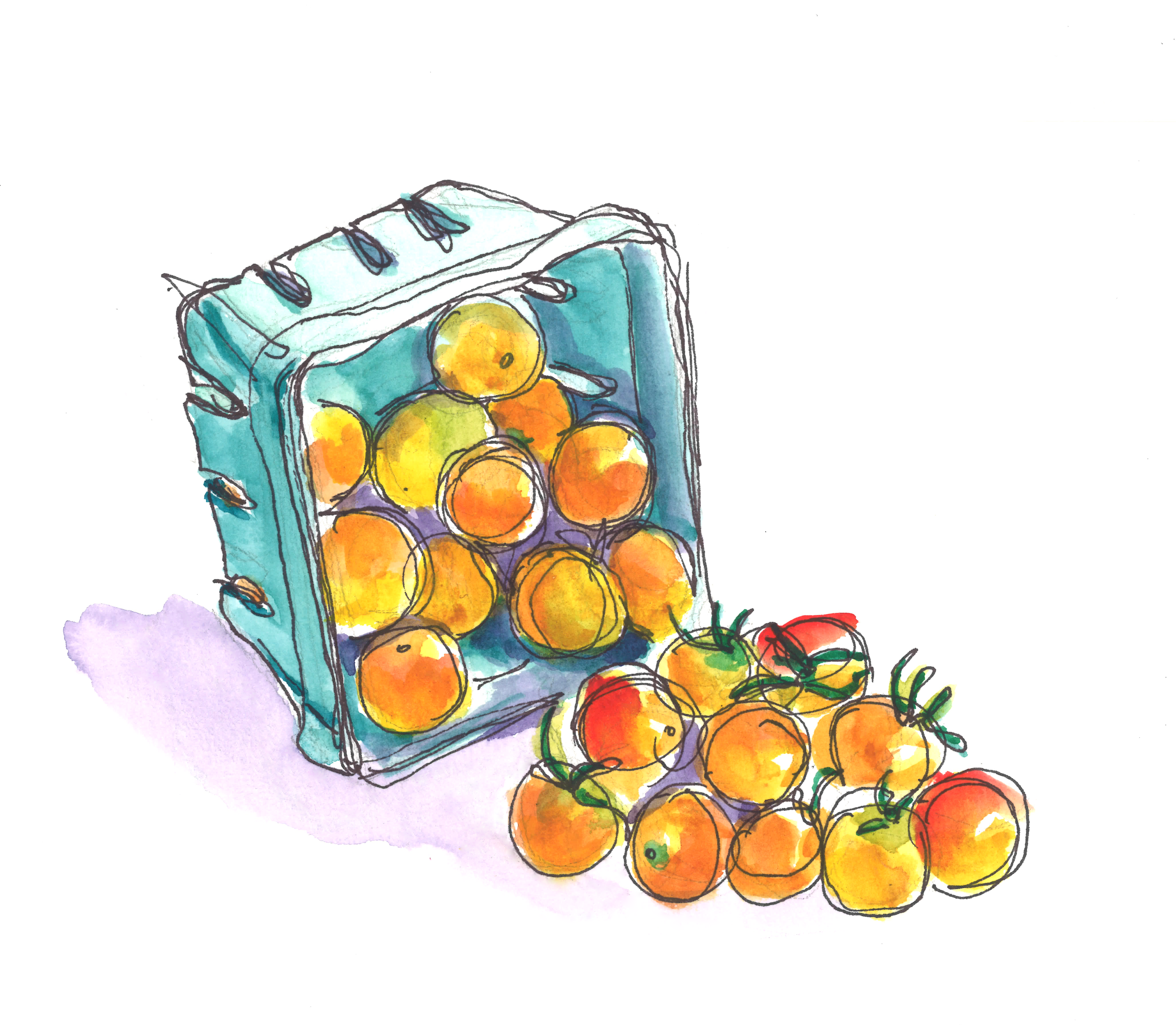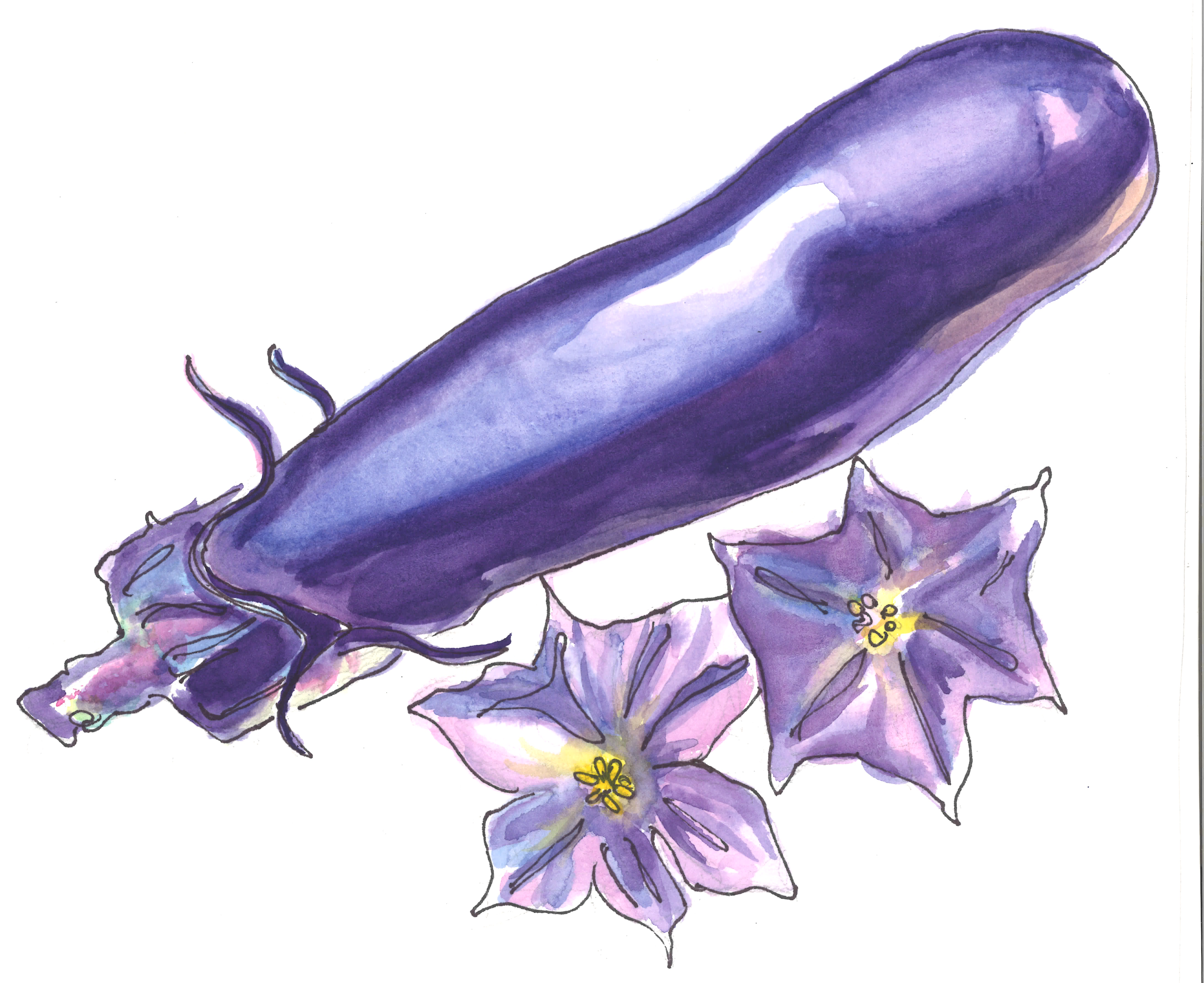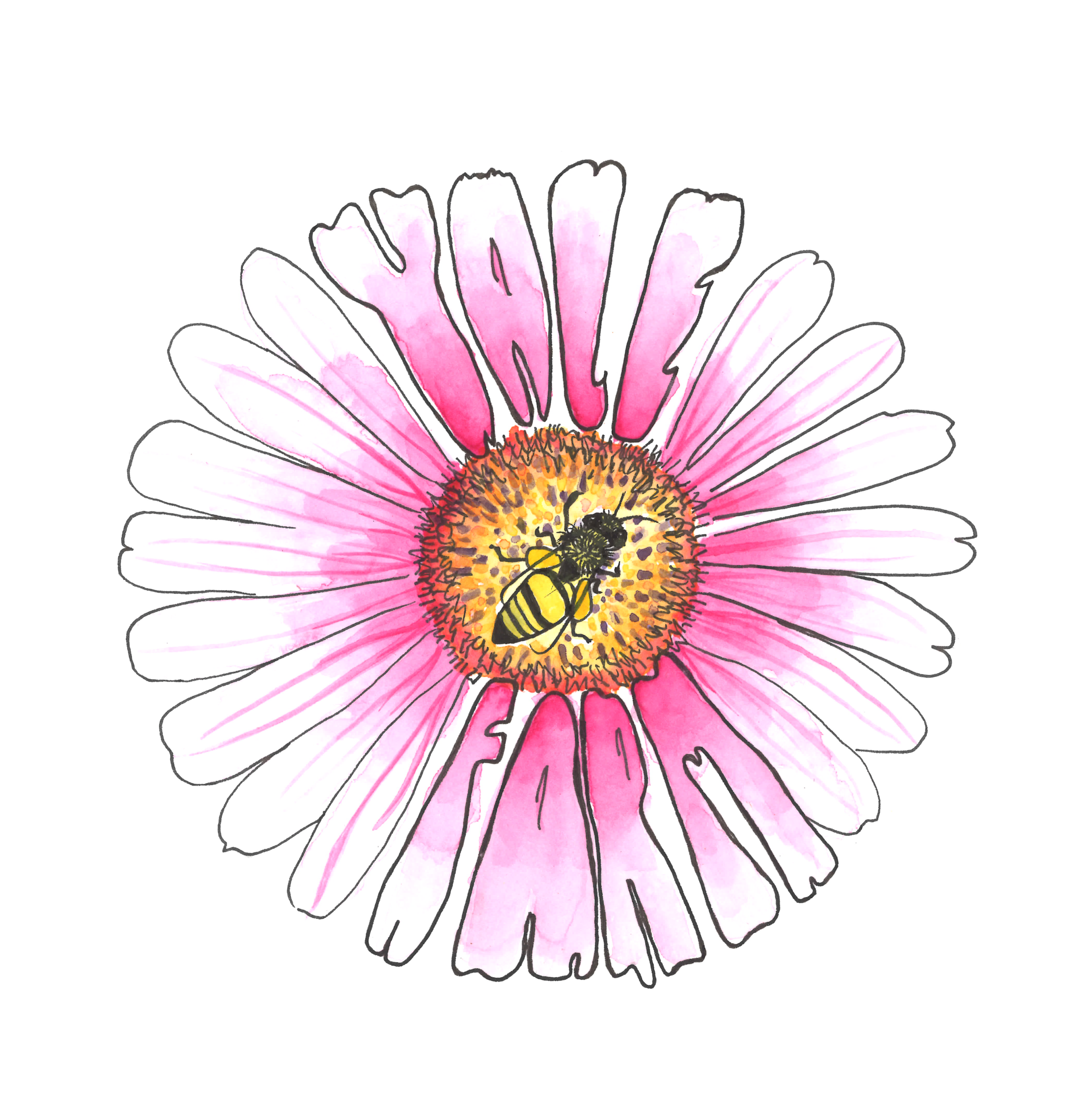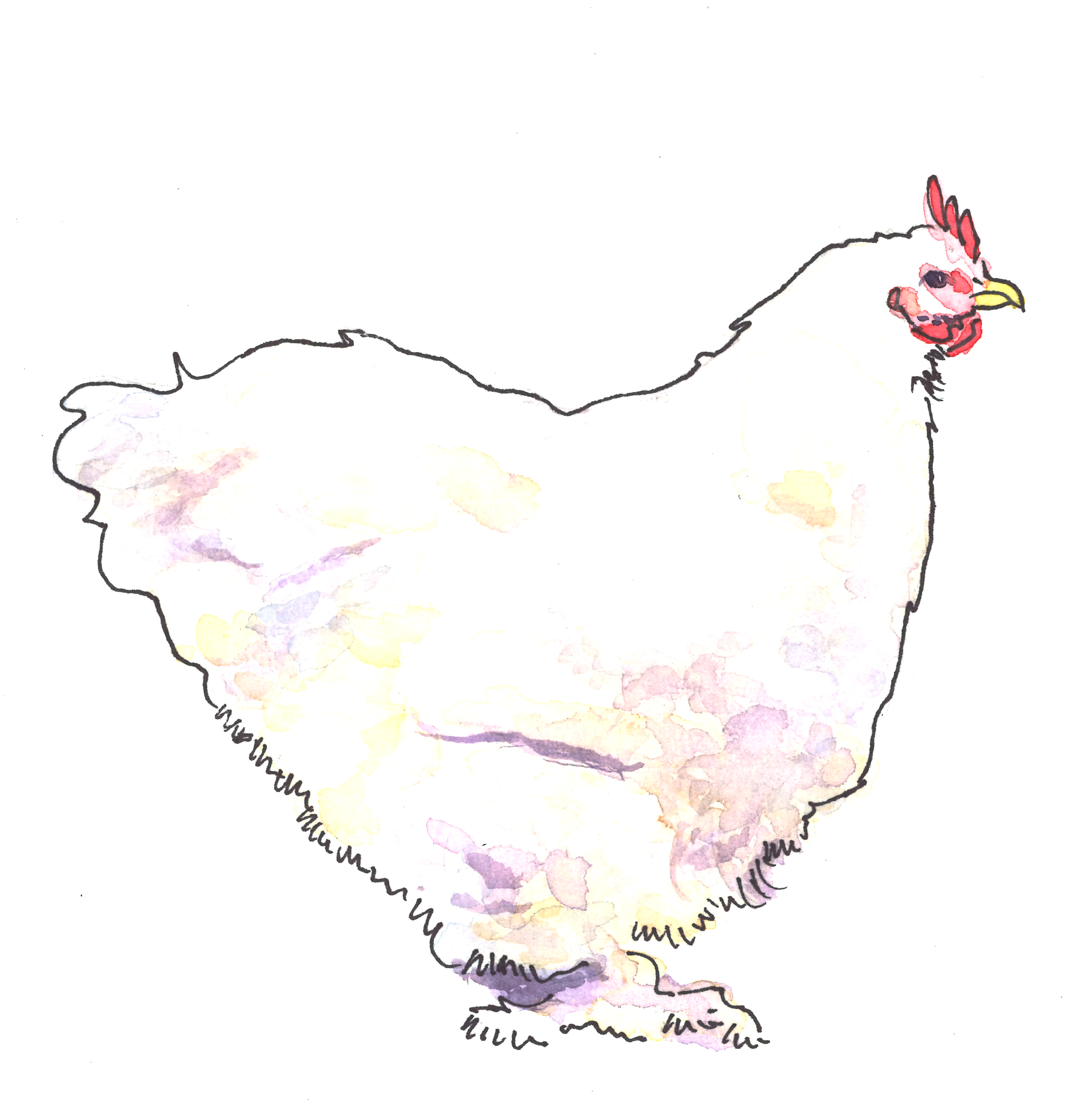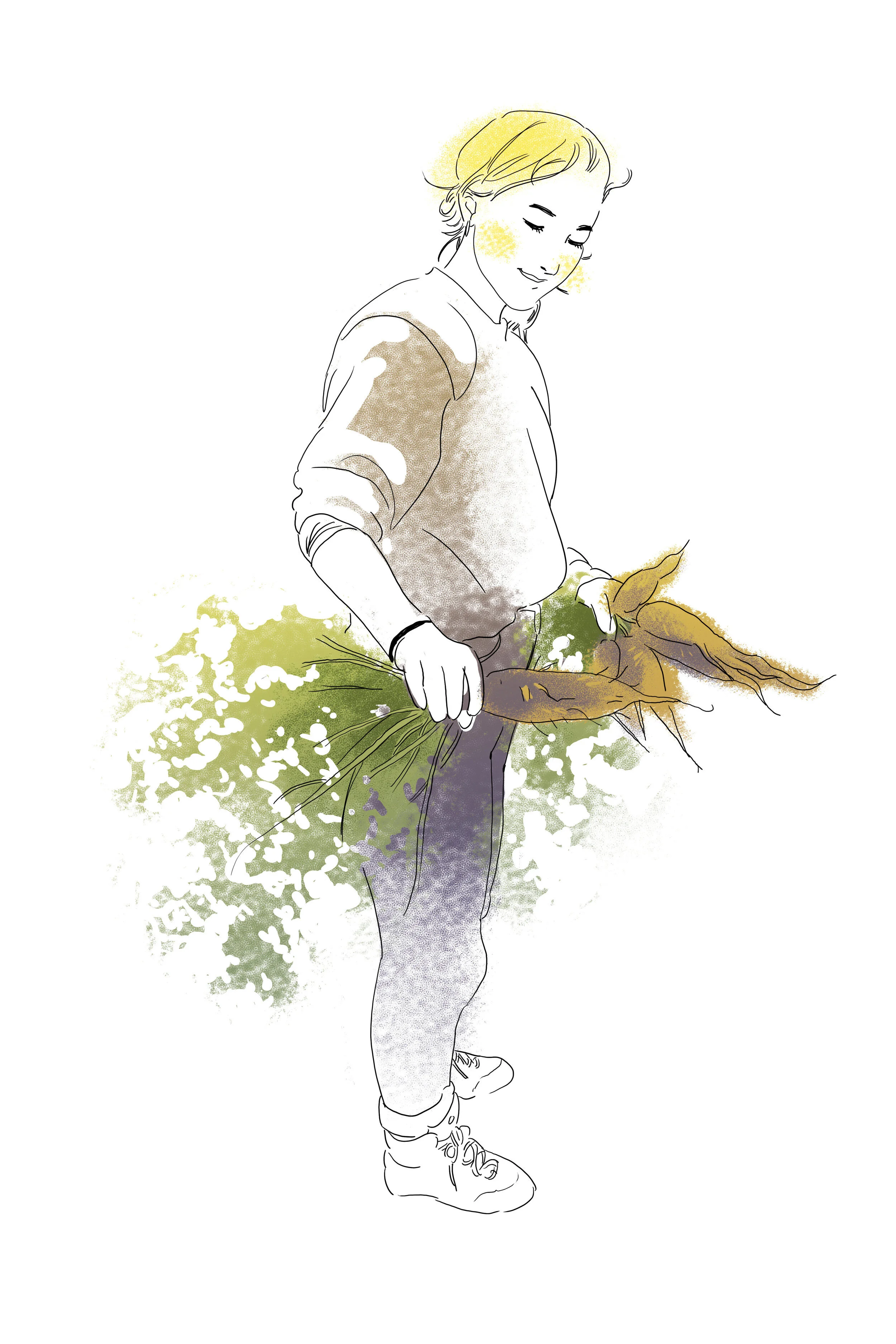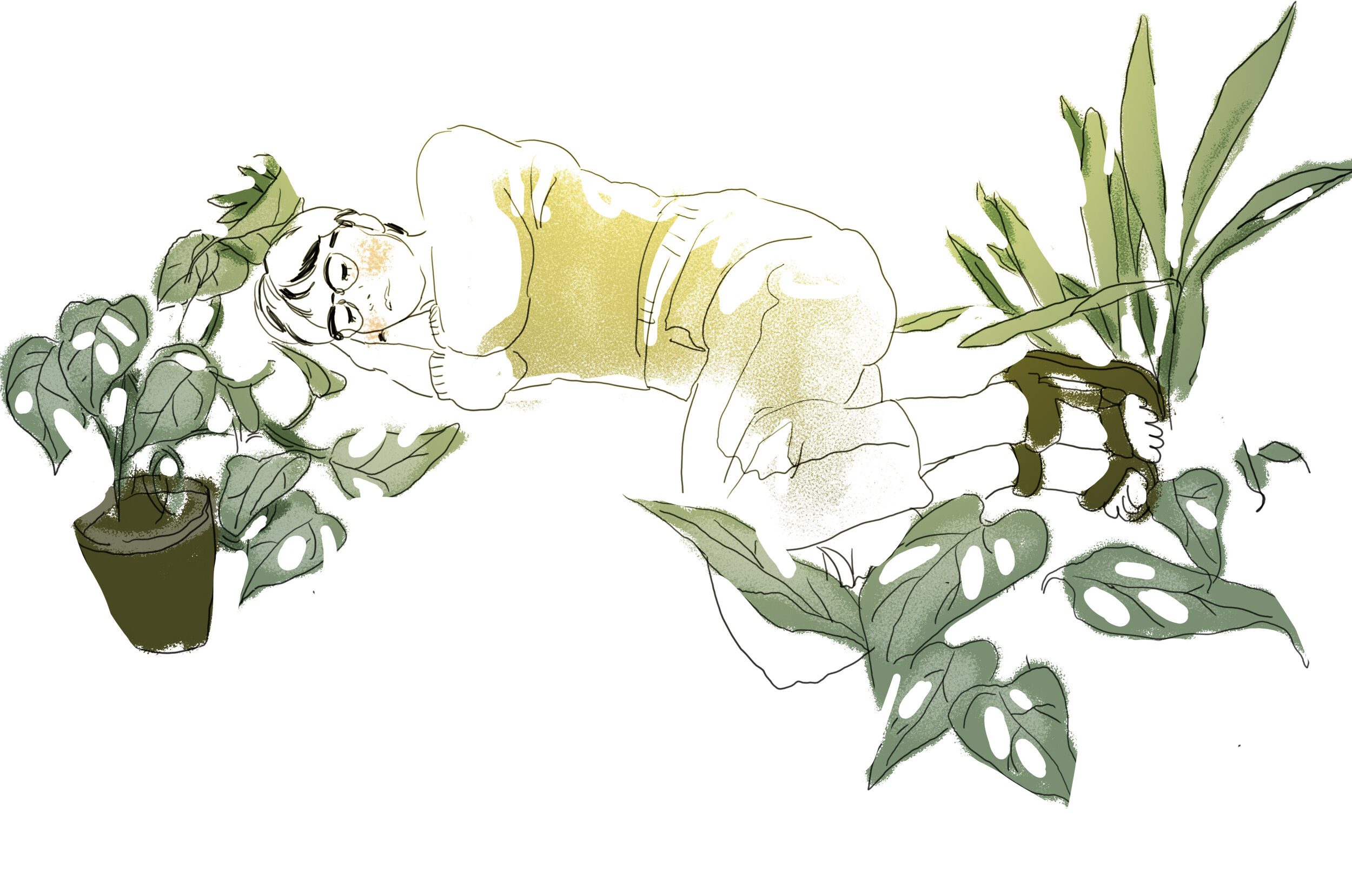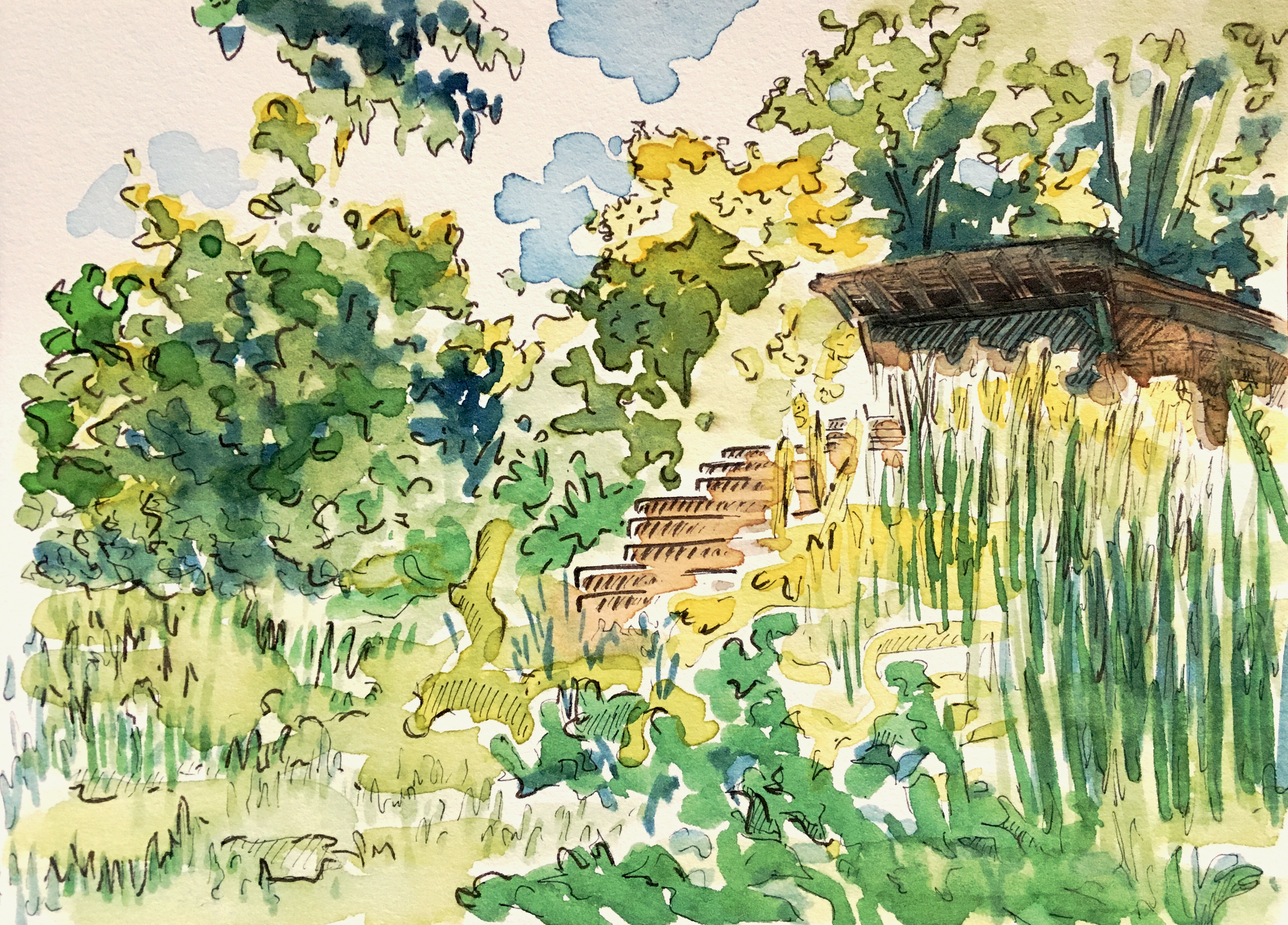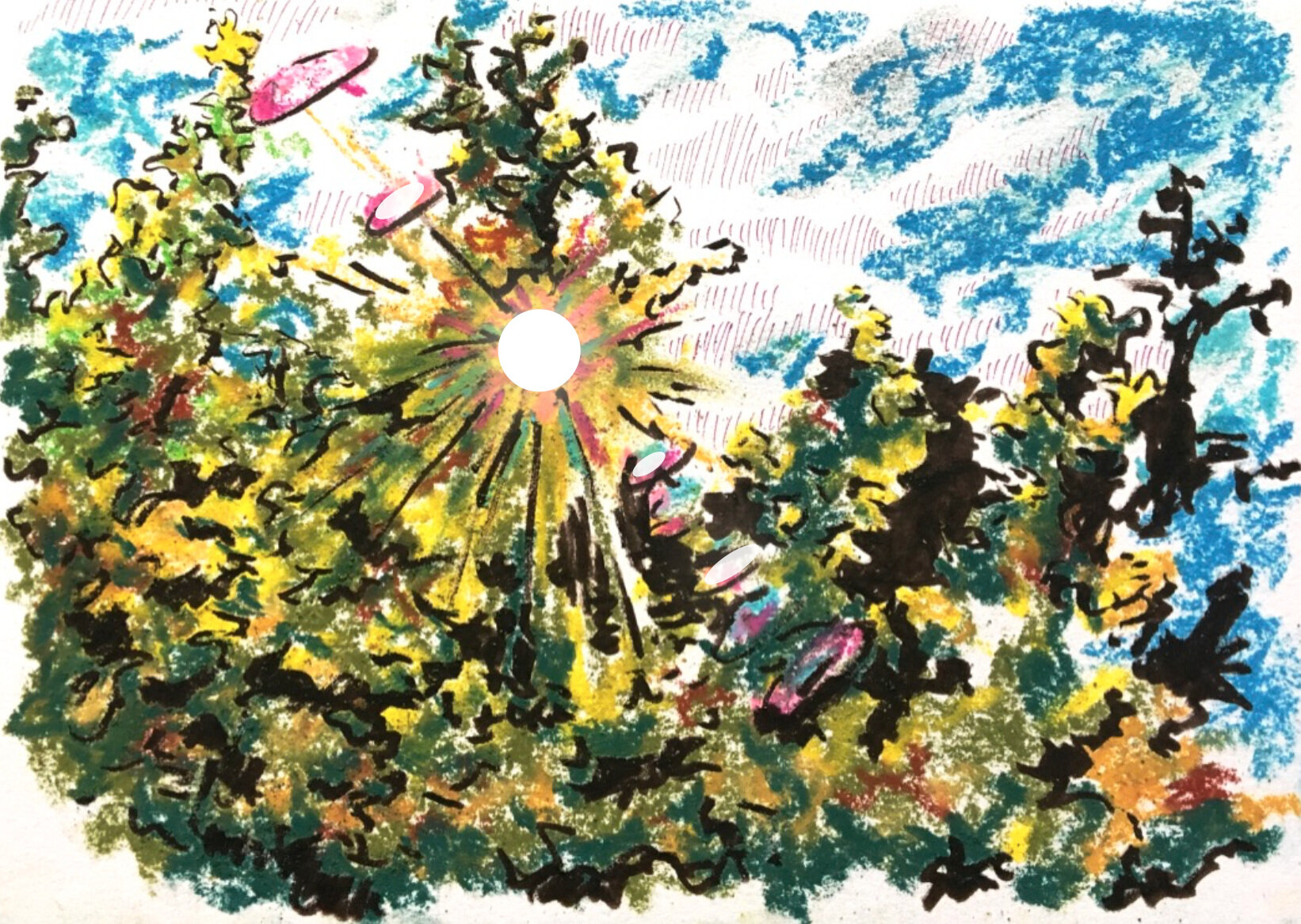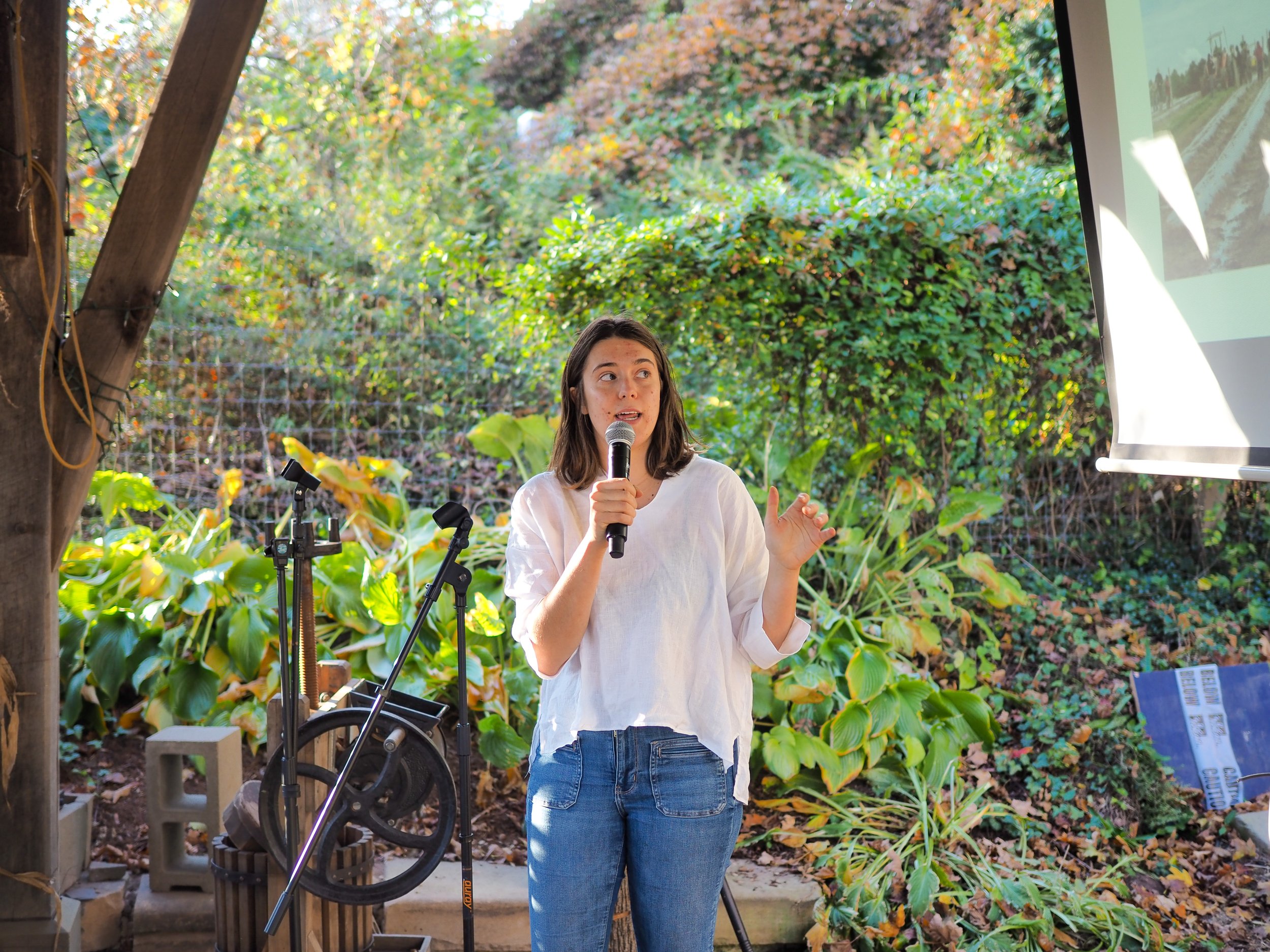
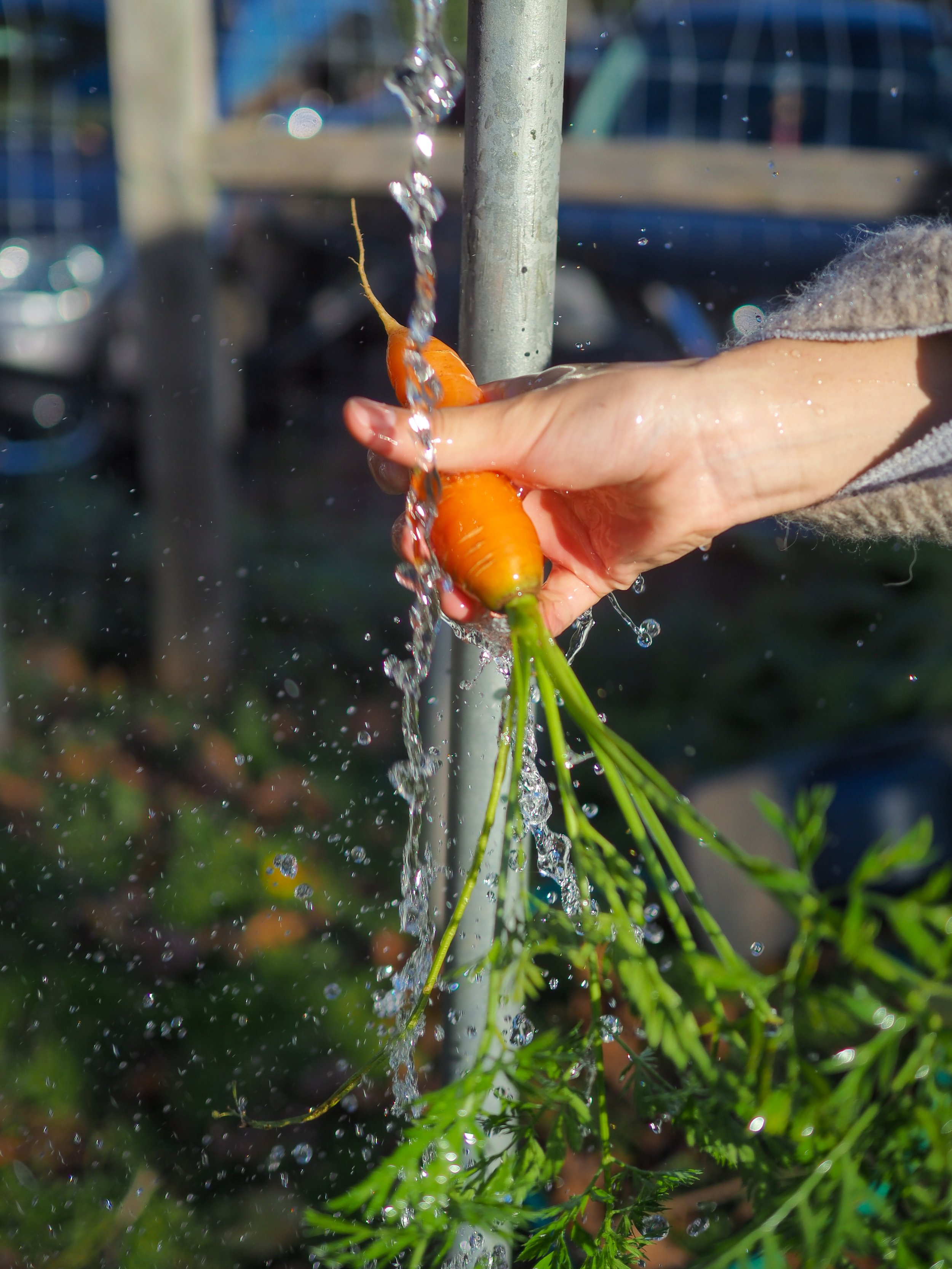
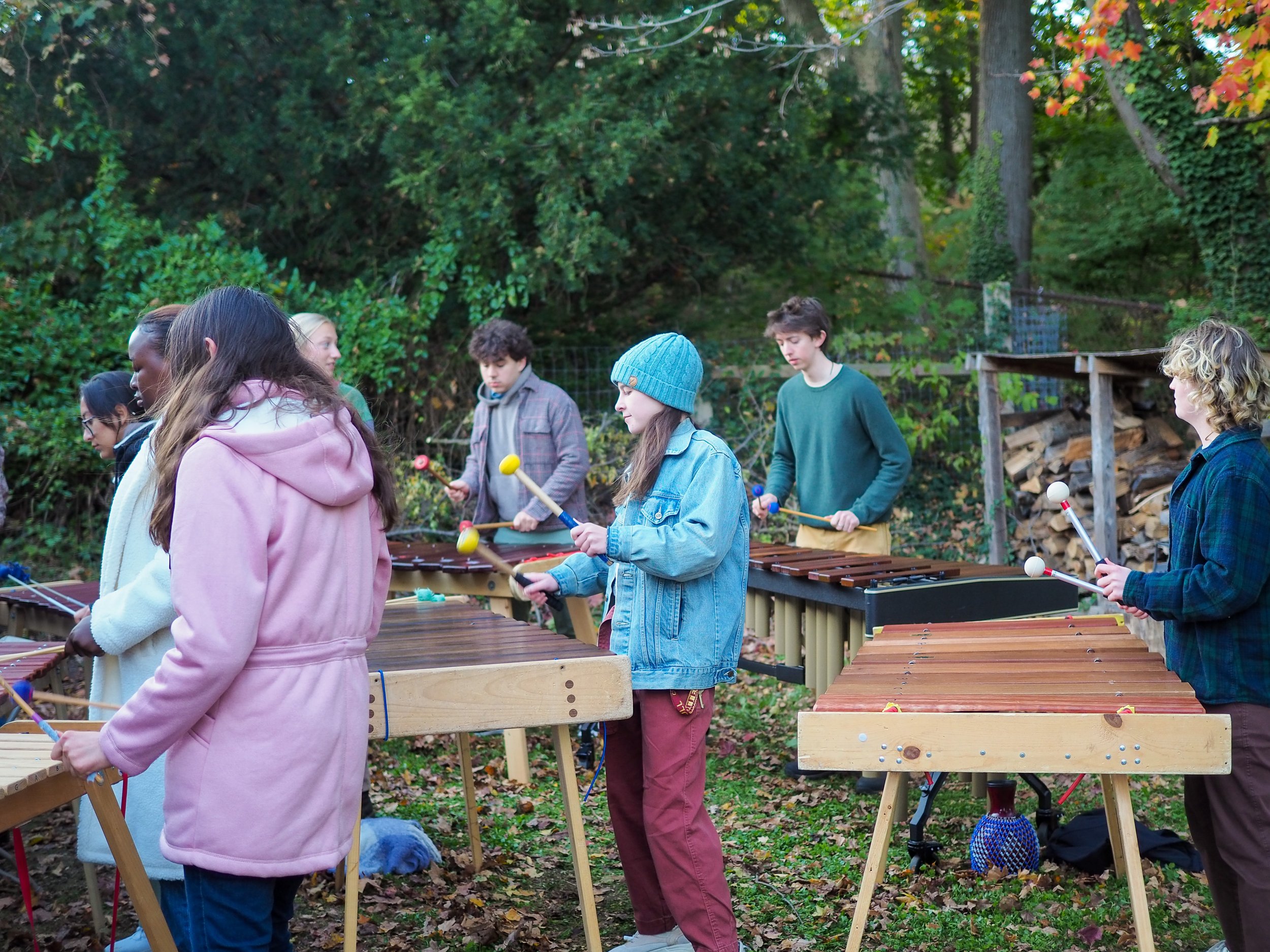
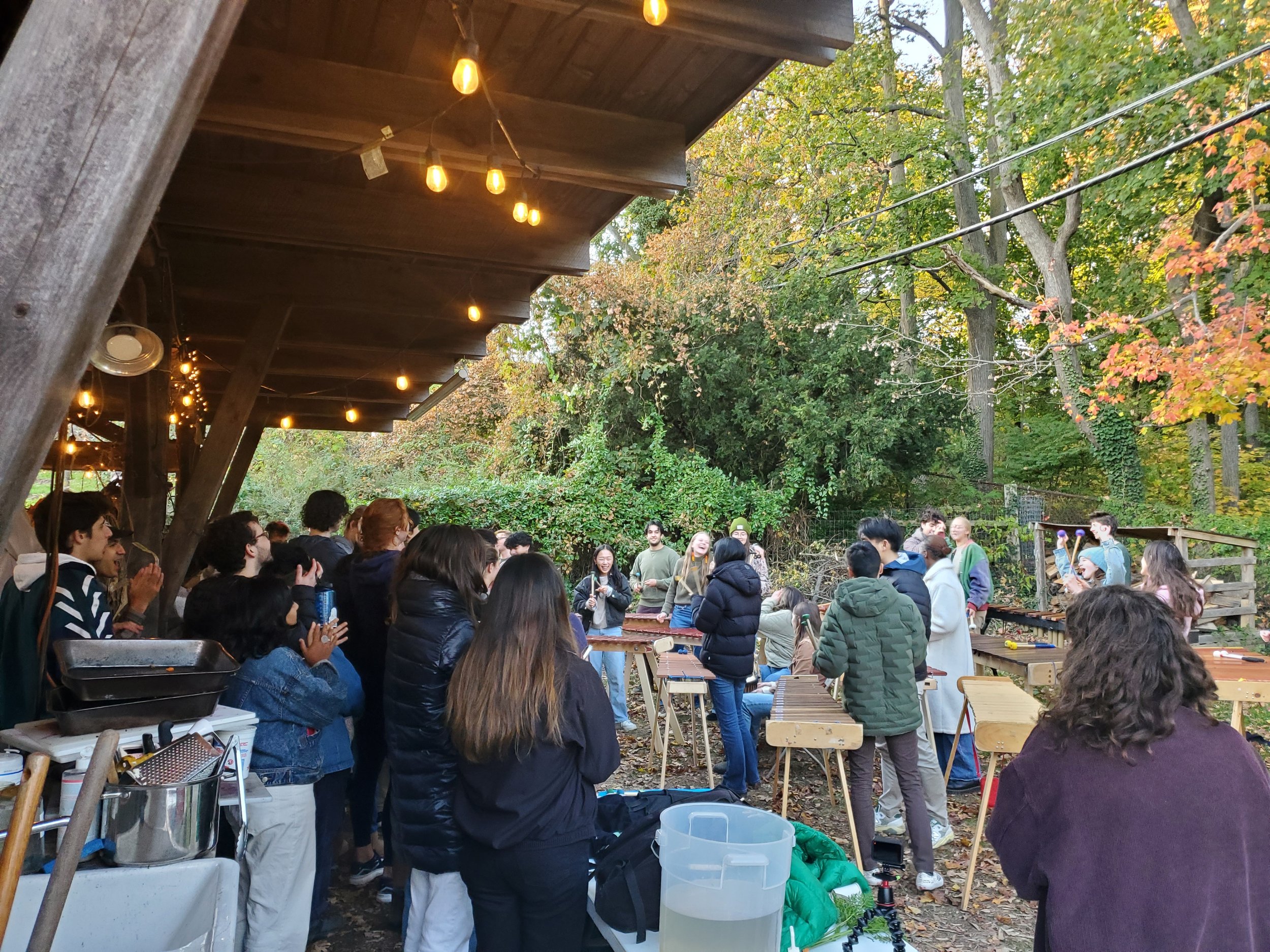
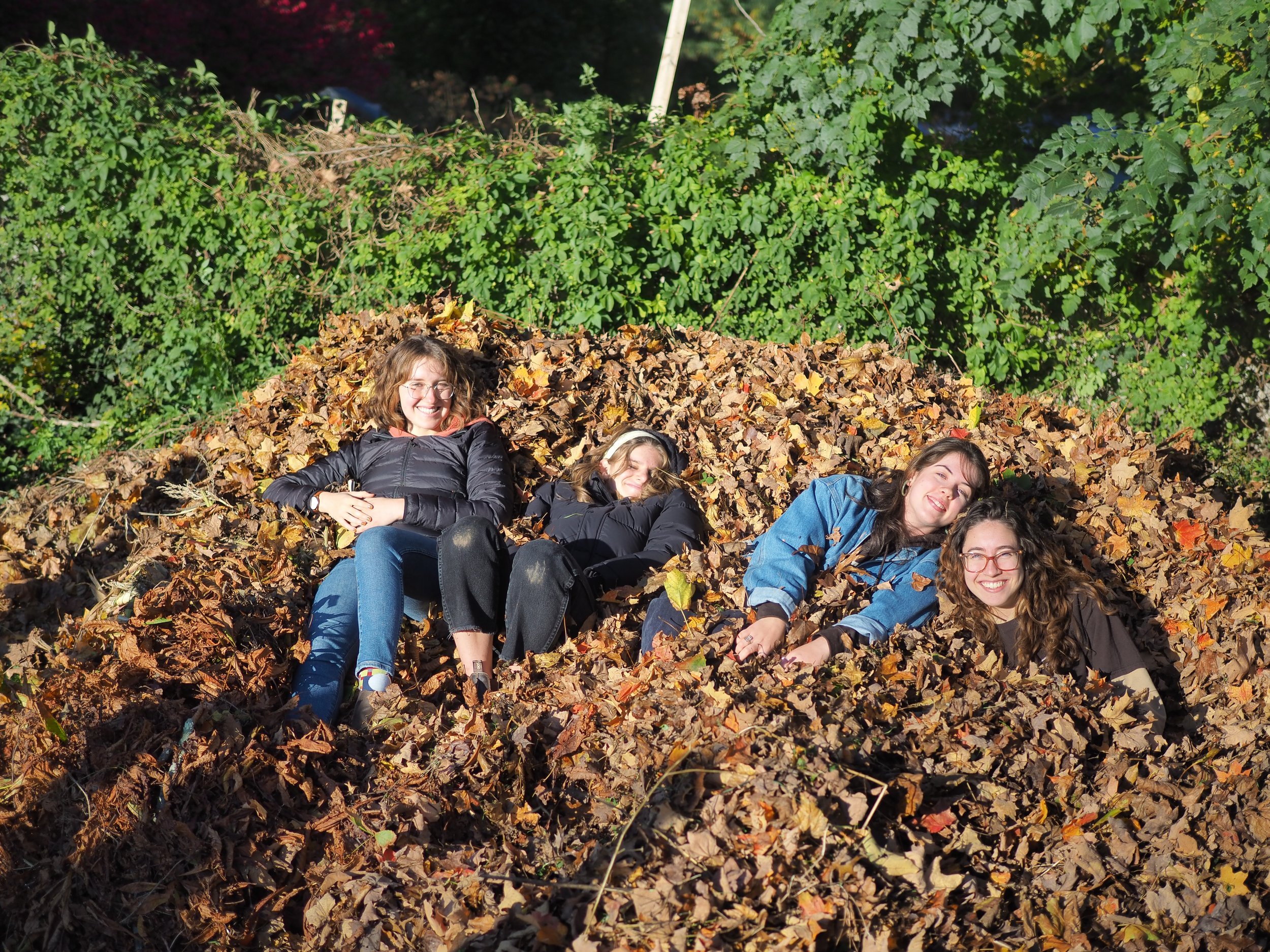

There was a fantastic turnout at the Friday workday and all the tasks were completed in record time. Not only did students tidy up multiple different tunnels around the Farm, they also raked fallen leaves, removed hops vines, and turned the compost. All in all, it was a highly productive session and we are super grateful for the wonderful sense of community throughout the day.
It was then time for Global Food Fellow Bea Portela '24 to present her knead 2 know. Through her summer internship at Southern Migrant Legal Services, Portela immersed herself in the advocating process via direct outreach to farmworkers. “They don’t really know about our services,” says Portela, “so it’s up to us to reach out to them and tell them that we exist.” As part of her outreach, Portela got the opportunity to travel to a lot of beautiful places in the south. However, with various ‘private property’ and ‘no trespassing’ signs around the farms, work was both beautiful and challenging. Portela shared with us that working and living conditions of farmworkers were not ideal. Many homes were left unfinished. Some farmworkers lived in makeshift barracks and cramped conditions. Portela believed that it was important for people to understand the conditions that farmworkers were living with, in order to emphasize the importance of giving farmworkers the support they need and reaching out to them.
The farmworkers she talked to were not always receptive due to understandable reasons like fear of retaliation and potential for job blacklisting. If a farmer is not efficient in their work, Portela noted, word can get around the recruiters who have contacts with each other, effectively preventing the farmworker from getting hired anywhere in the United States. Portela with the outreach team ultimately tried a new outreach strategy towards the end of her internship that she calls “the tentacle approach”, which essentially meant that the legal aids were talking not only to farm workers but also people in the community connected with them including family and friends, former employees, community leaders, local immigration advocates, and more. This, while Portela experienced only once, already proved to be very successful and a more effective way to do outreach.
Afterward, the Yale Marimband performed for the first time on the Yale Farm. There was nothing quite like it: attendees got up and danced as fun rhythms rang through the air. Cheers and laughter ended the day on a high note, marking the performance a resounding hit. Intercultural Moonlight Stories the same night was also a success. With s’mores, hot chocolate, tea, and a campfire warming everyone up in the chilly night, we witnessed so much talent from singing to poetry reading to kazoos to group performances and more under the moonlight. The group cheered each other on in a supportive, intimate atmosphere.
In accordance with daylight savings ending, the next (and last!) knead 2 know of the semester on Friday, November 10th will start at 3:30 PM EST. Lazarus Summer Intern Rebecca Salazar will be talking about her podcast episode titled “The Three Sisters of Abya Yala: Mesoamerican Histories of Agroforestry, Animacy, and Agency”. The event will be in collaboration with the Henry Roe Cloud Conference timed with the 10th year celebration of the Yale Native American Cultural Center.
Photos by Reese Neal '25 from this past week’s knead 2 know can be found here.

